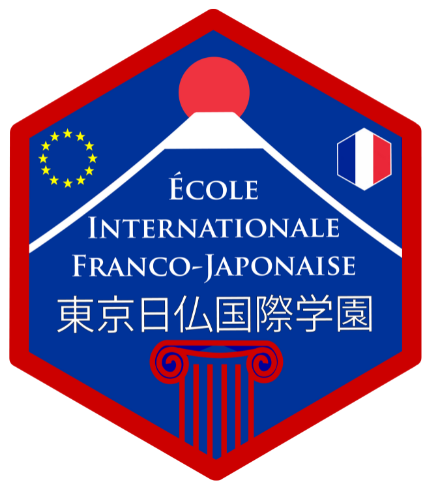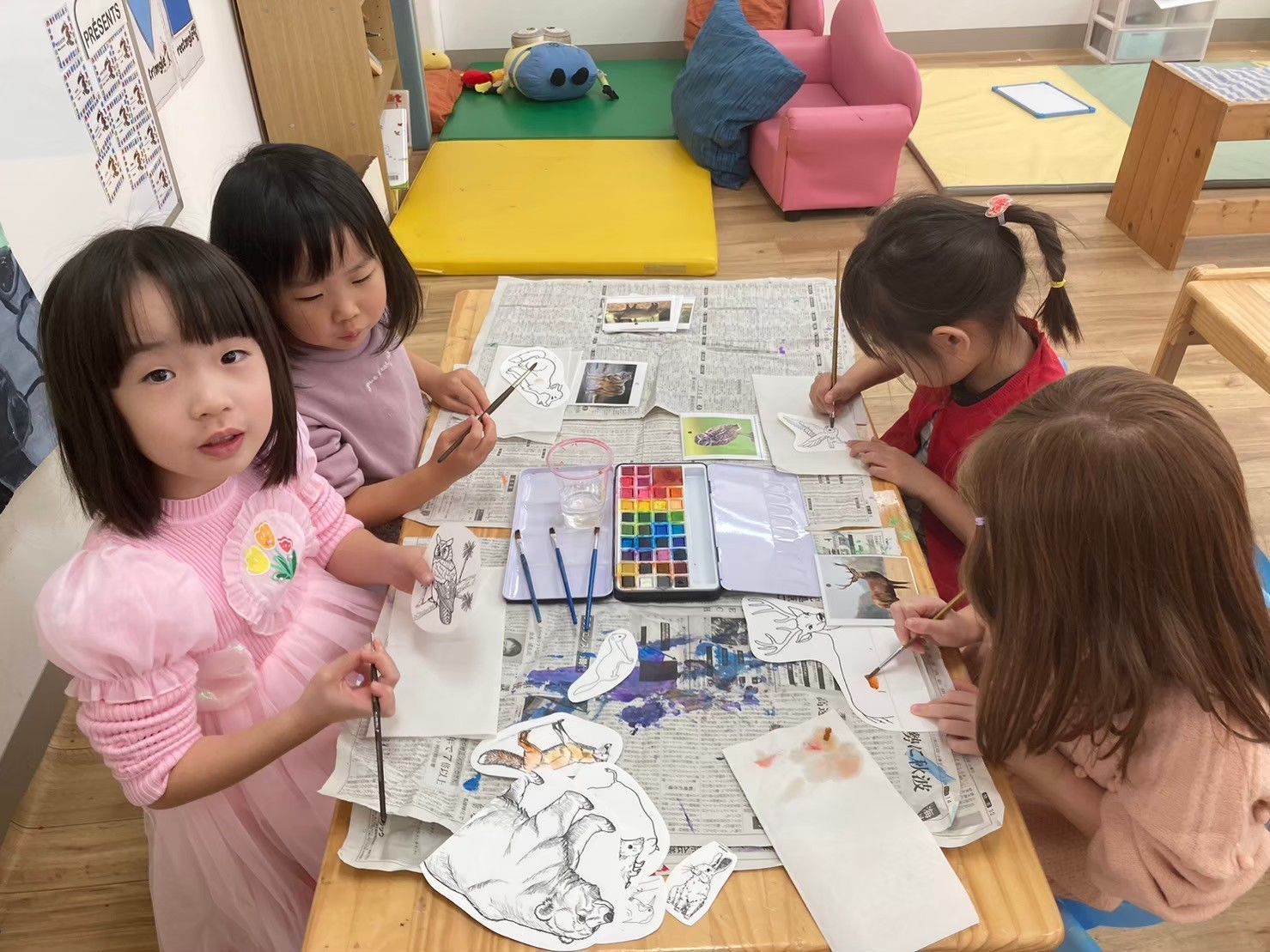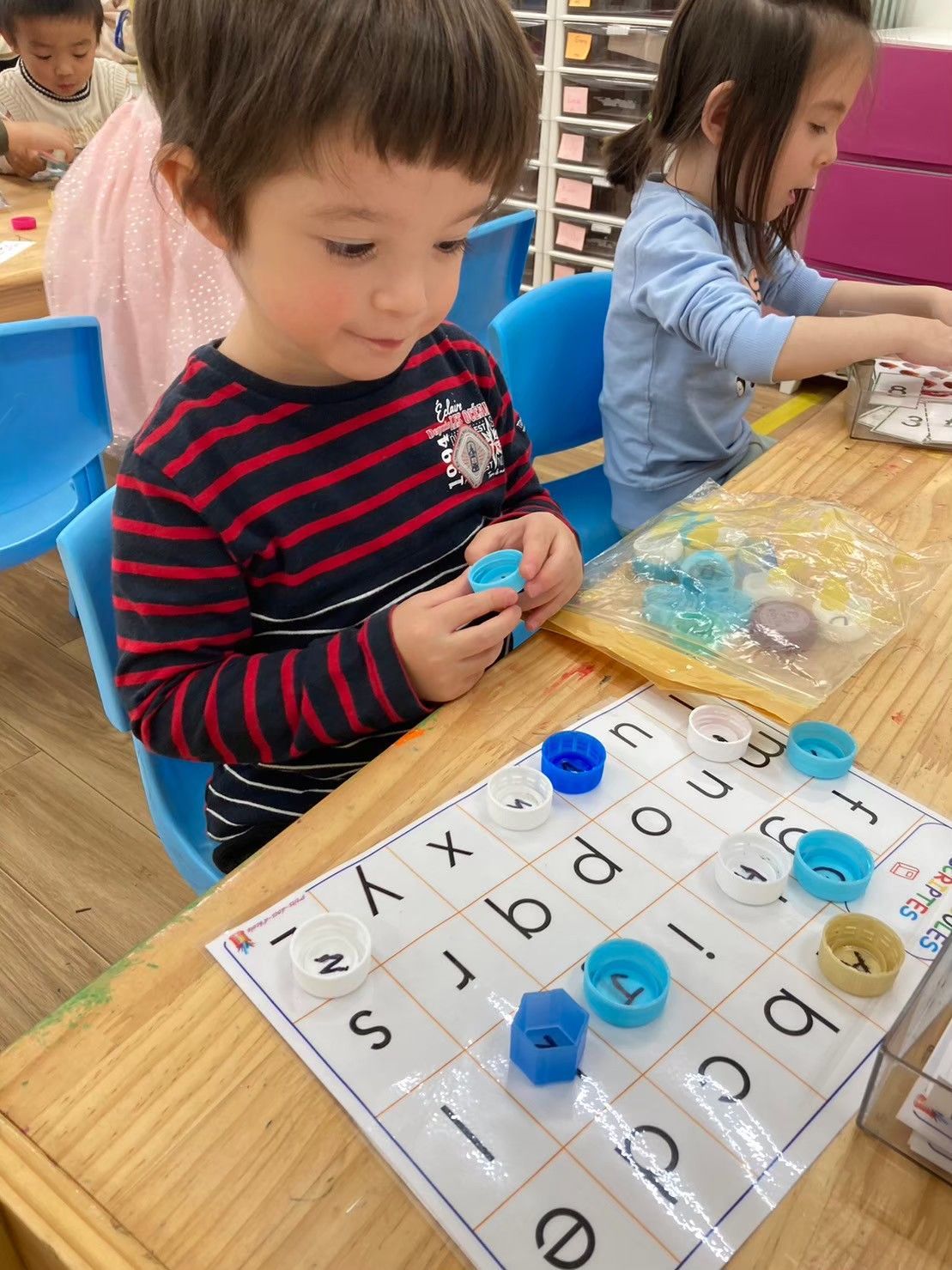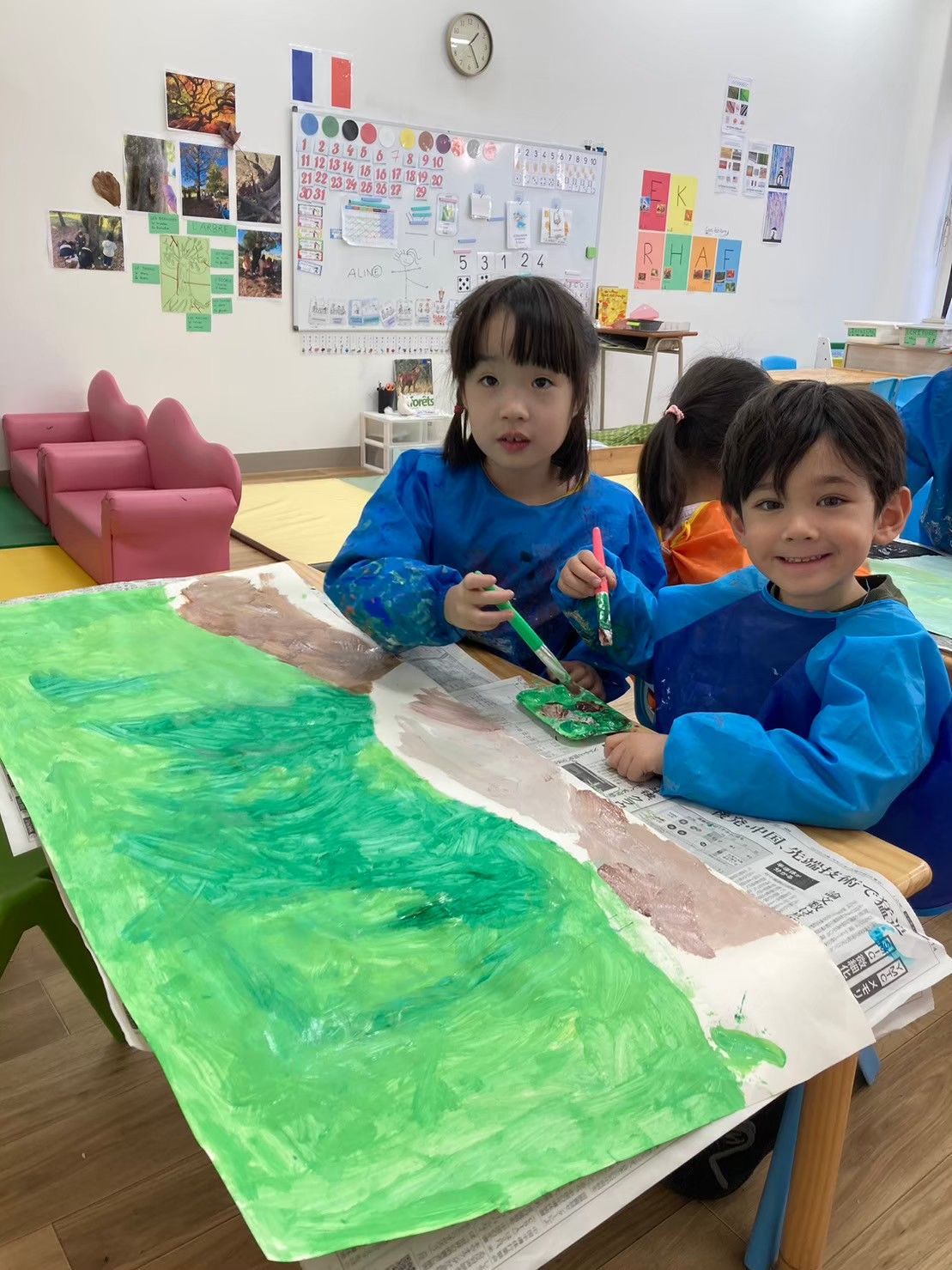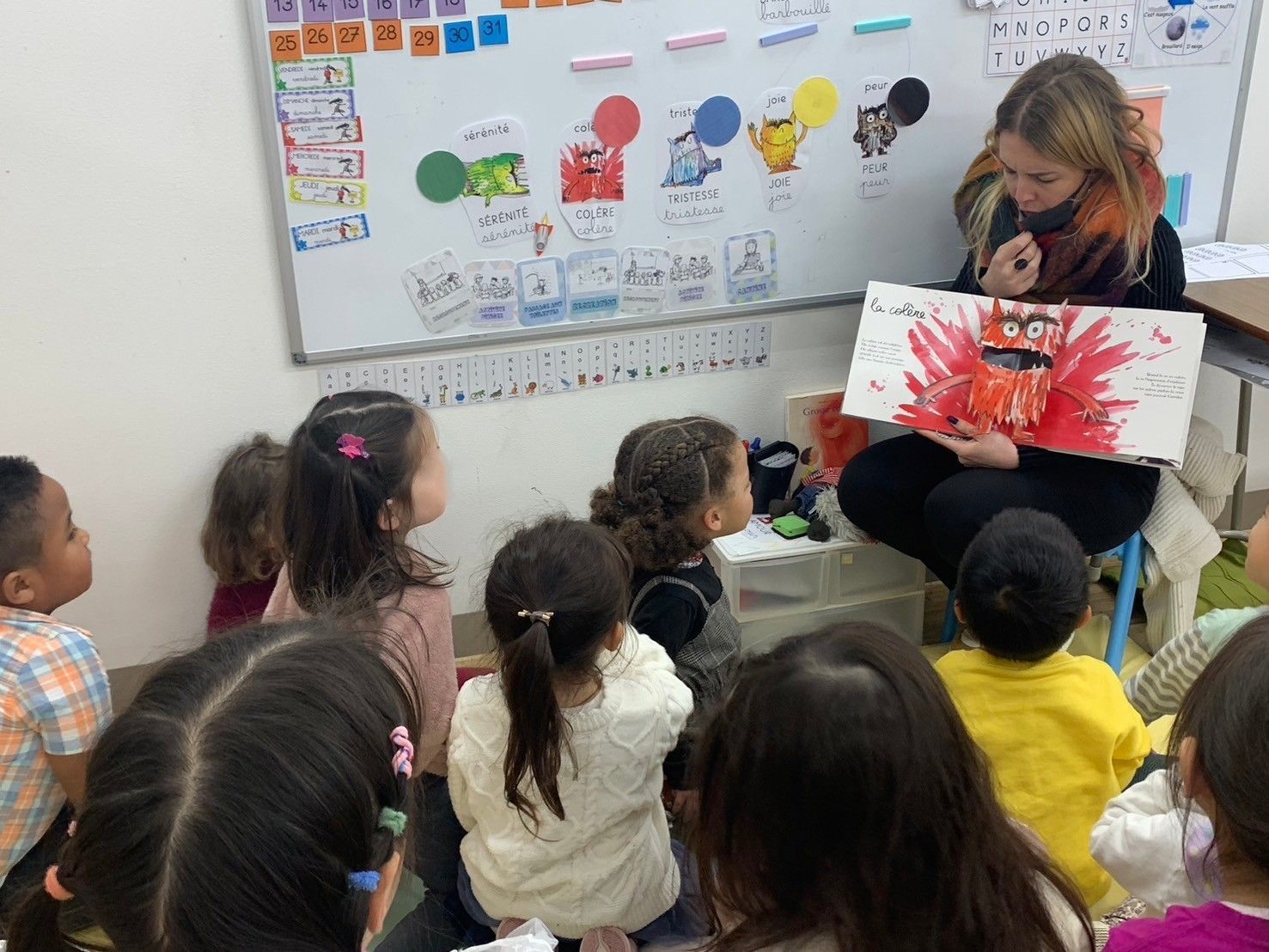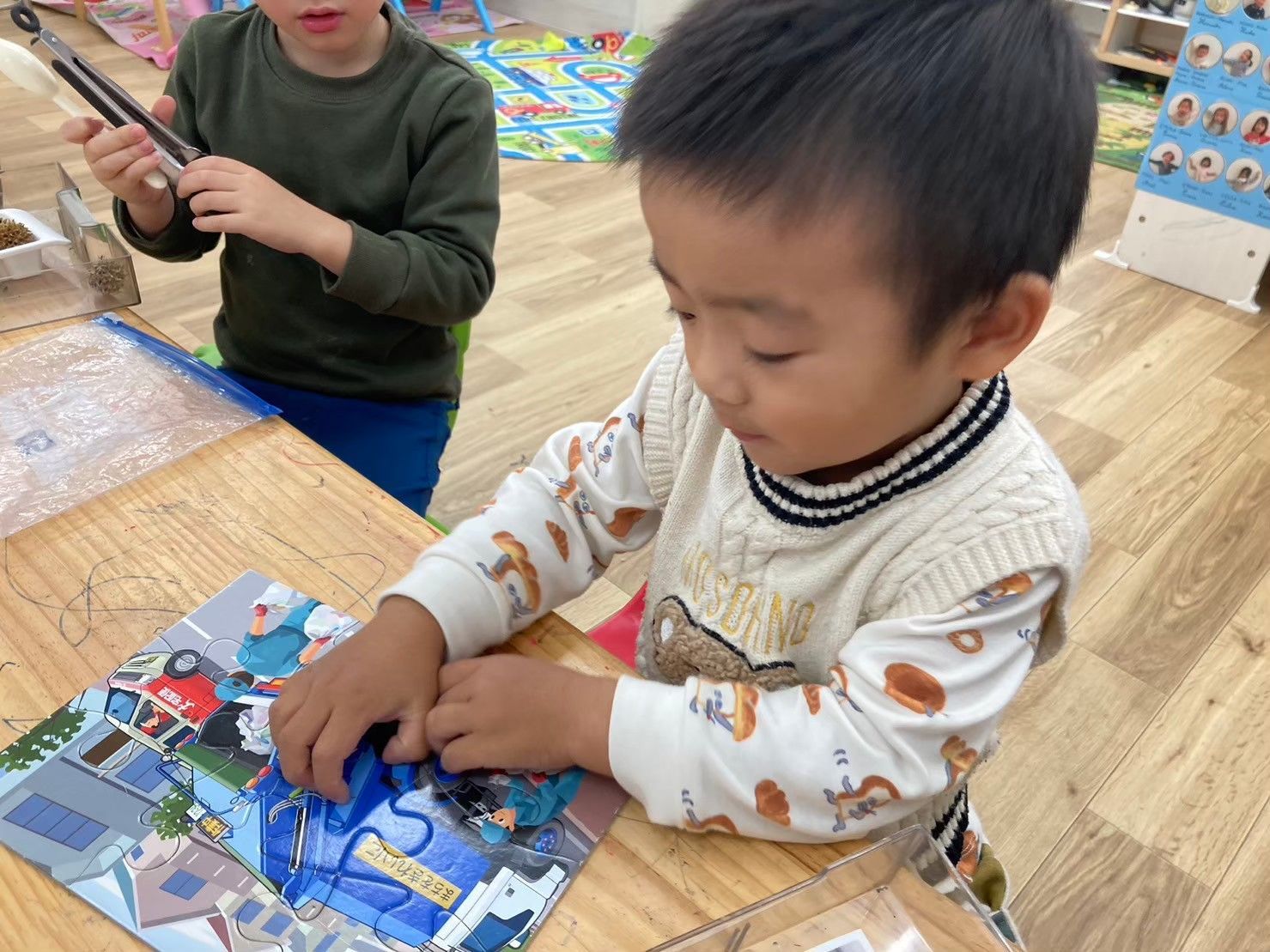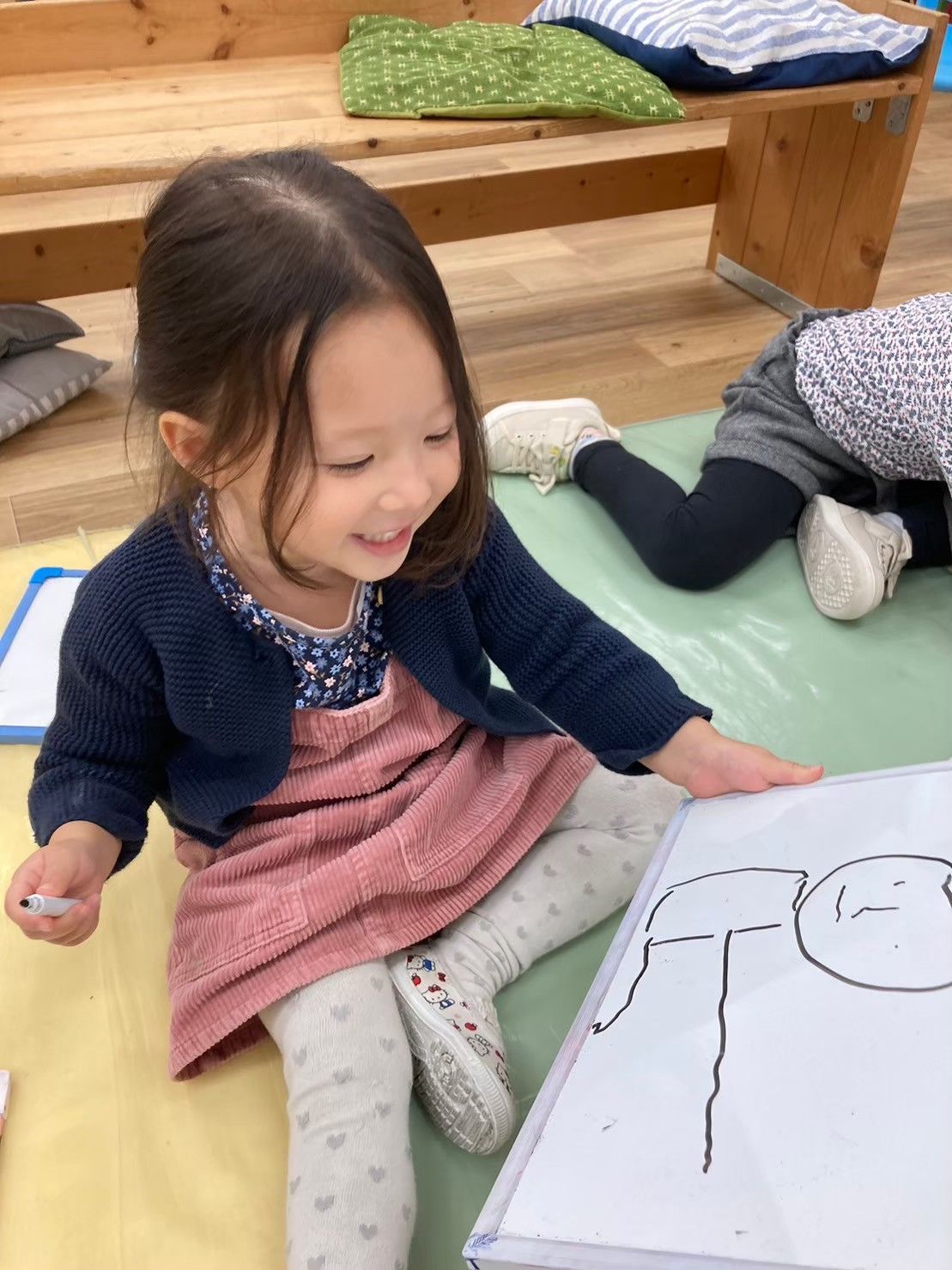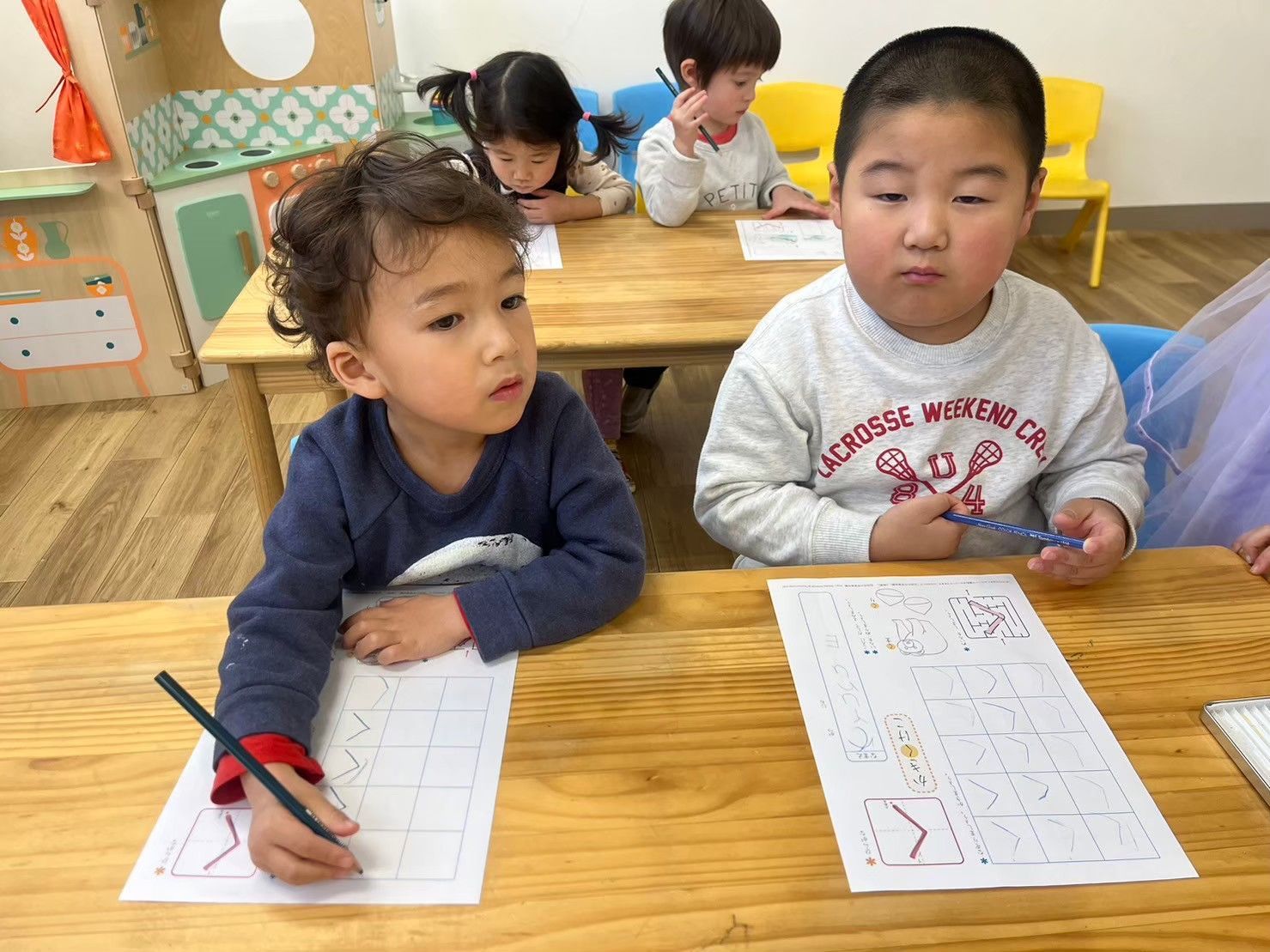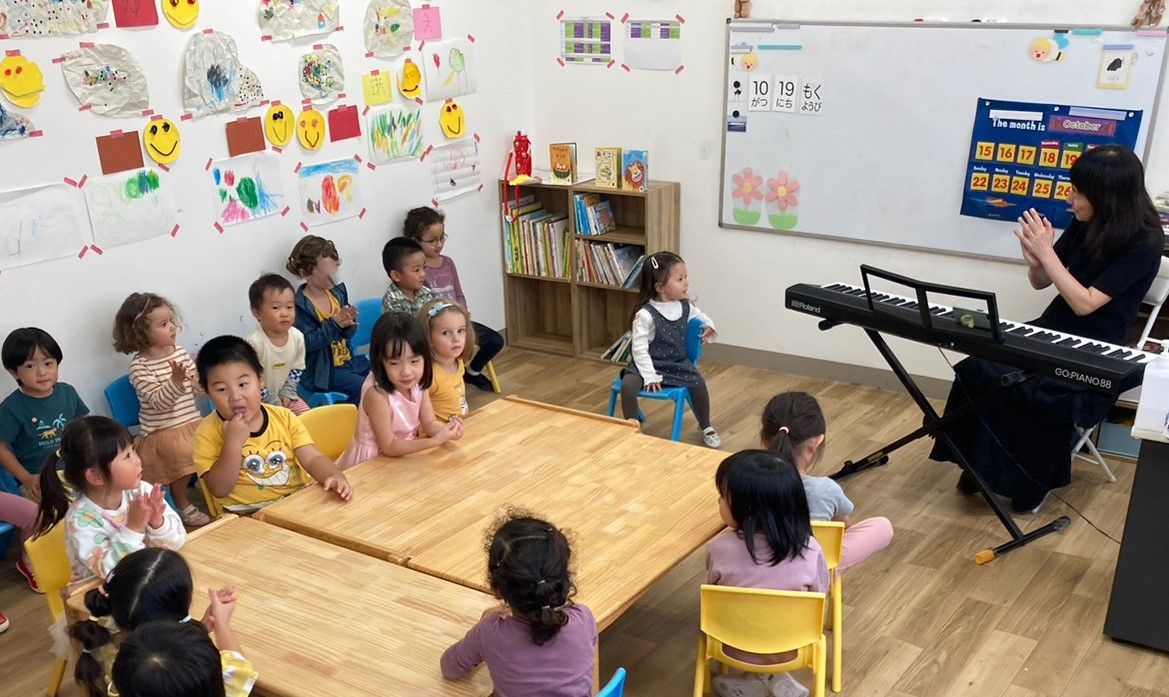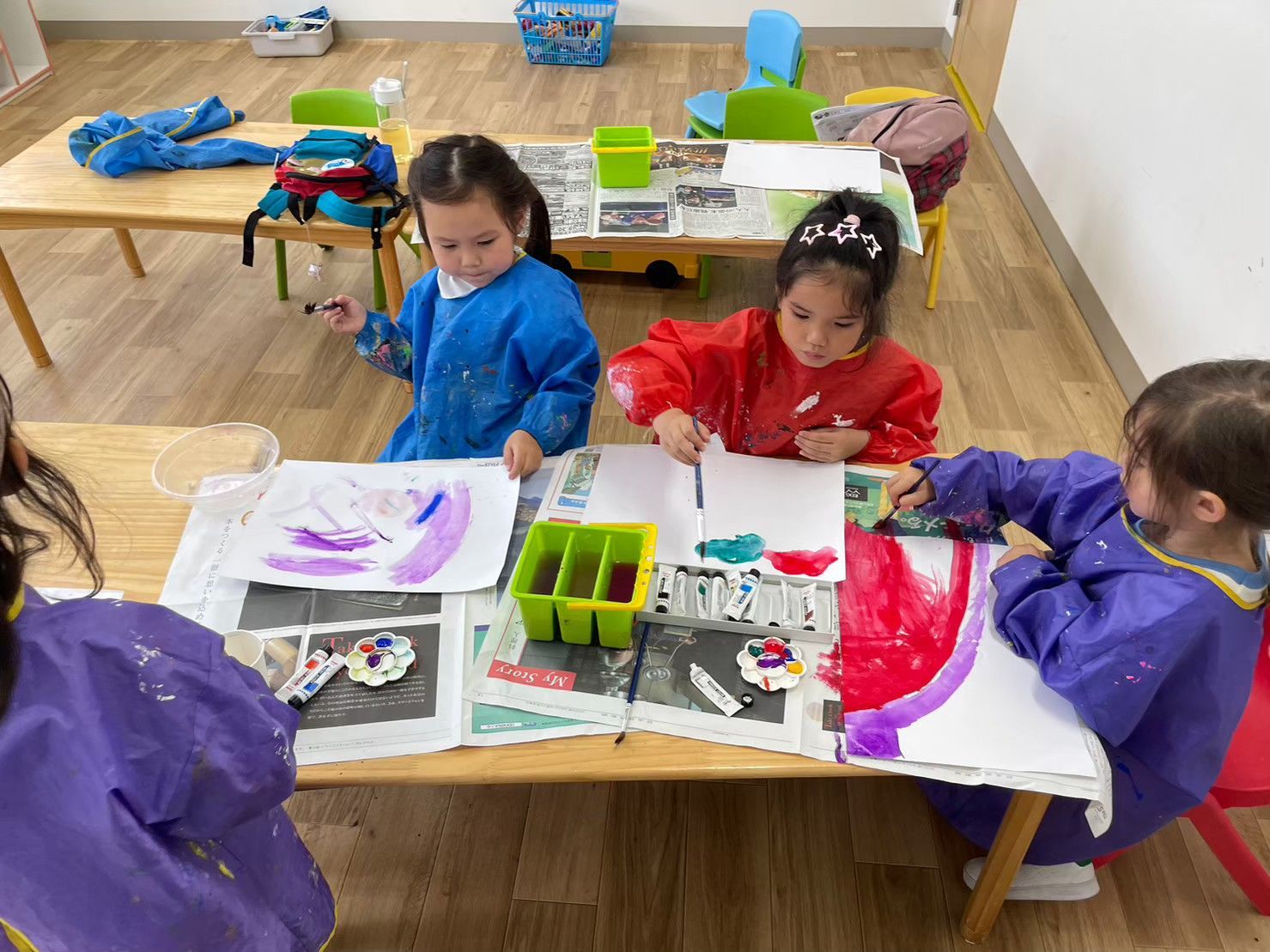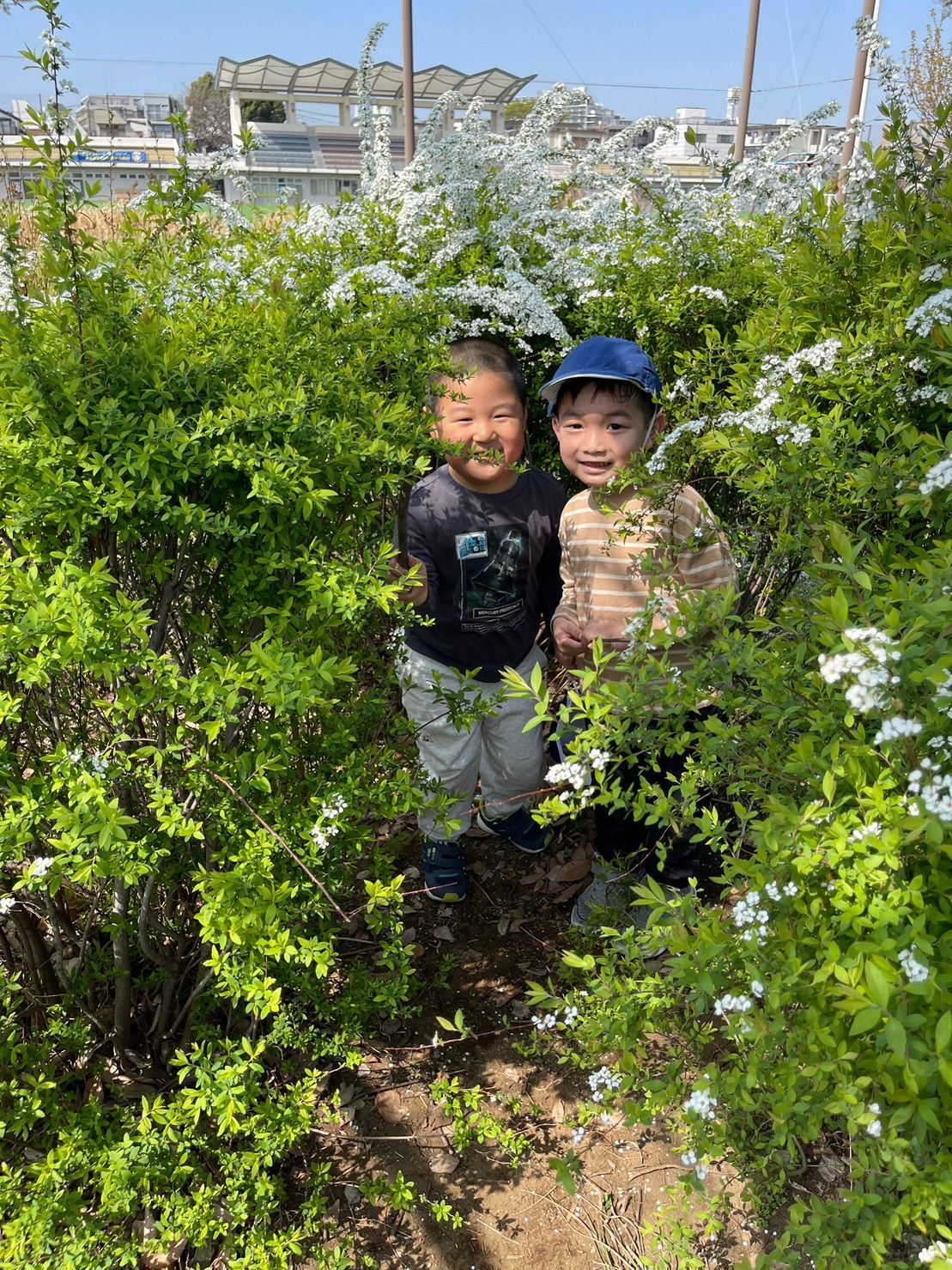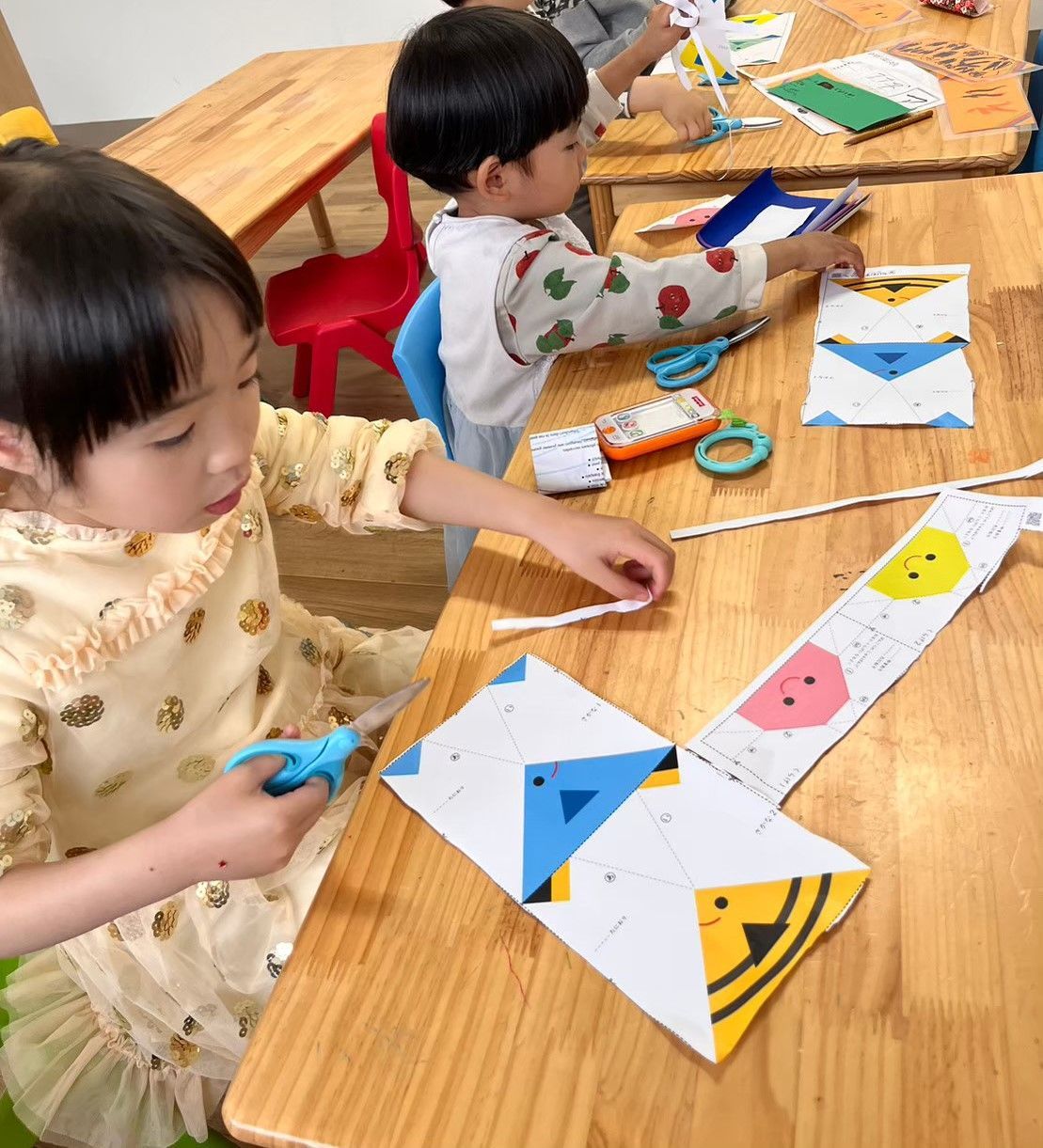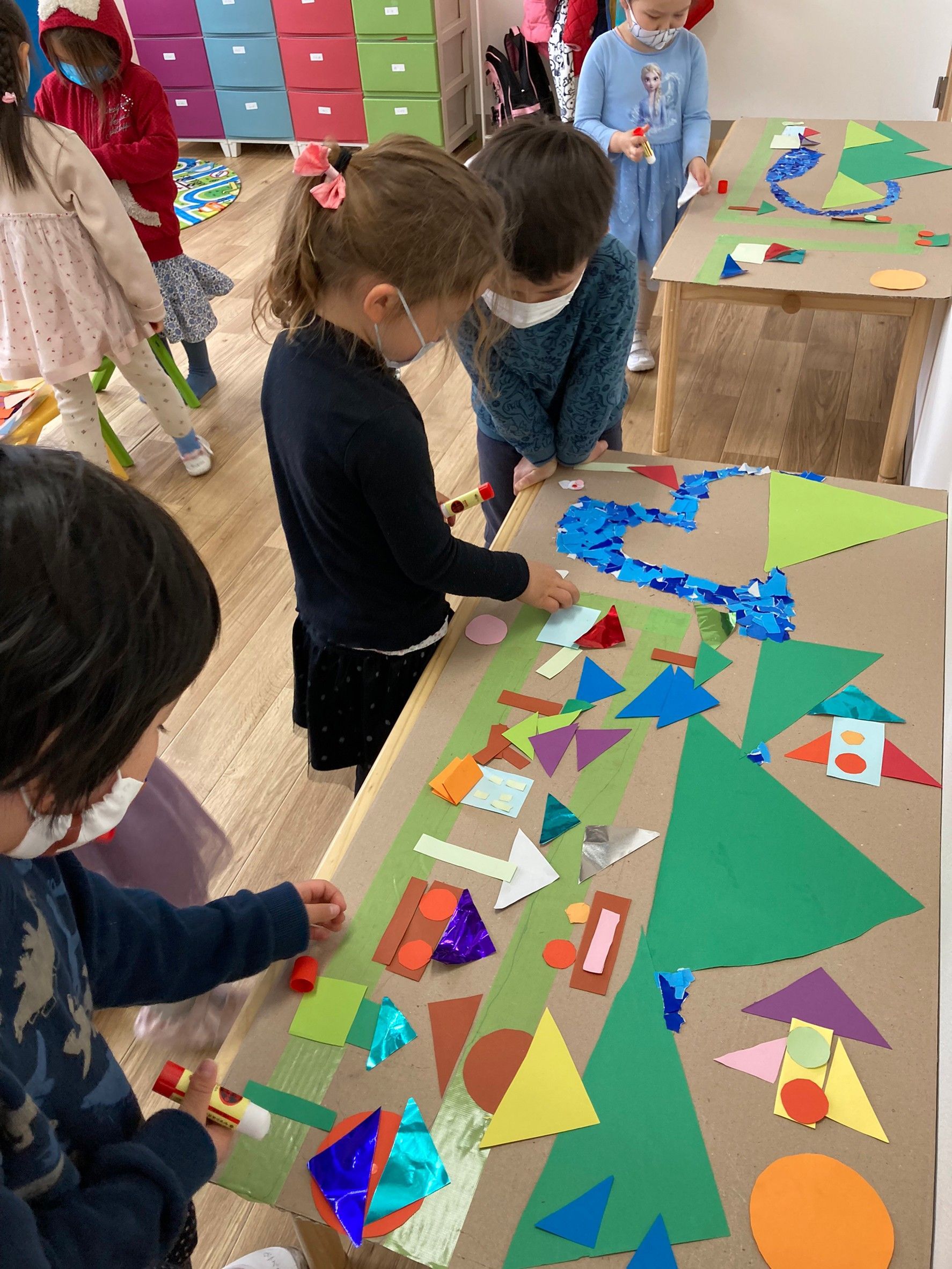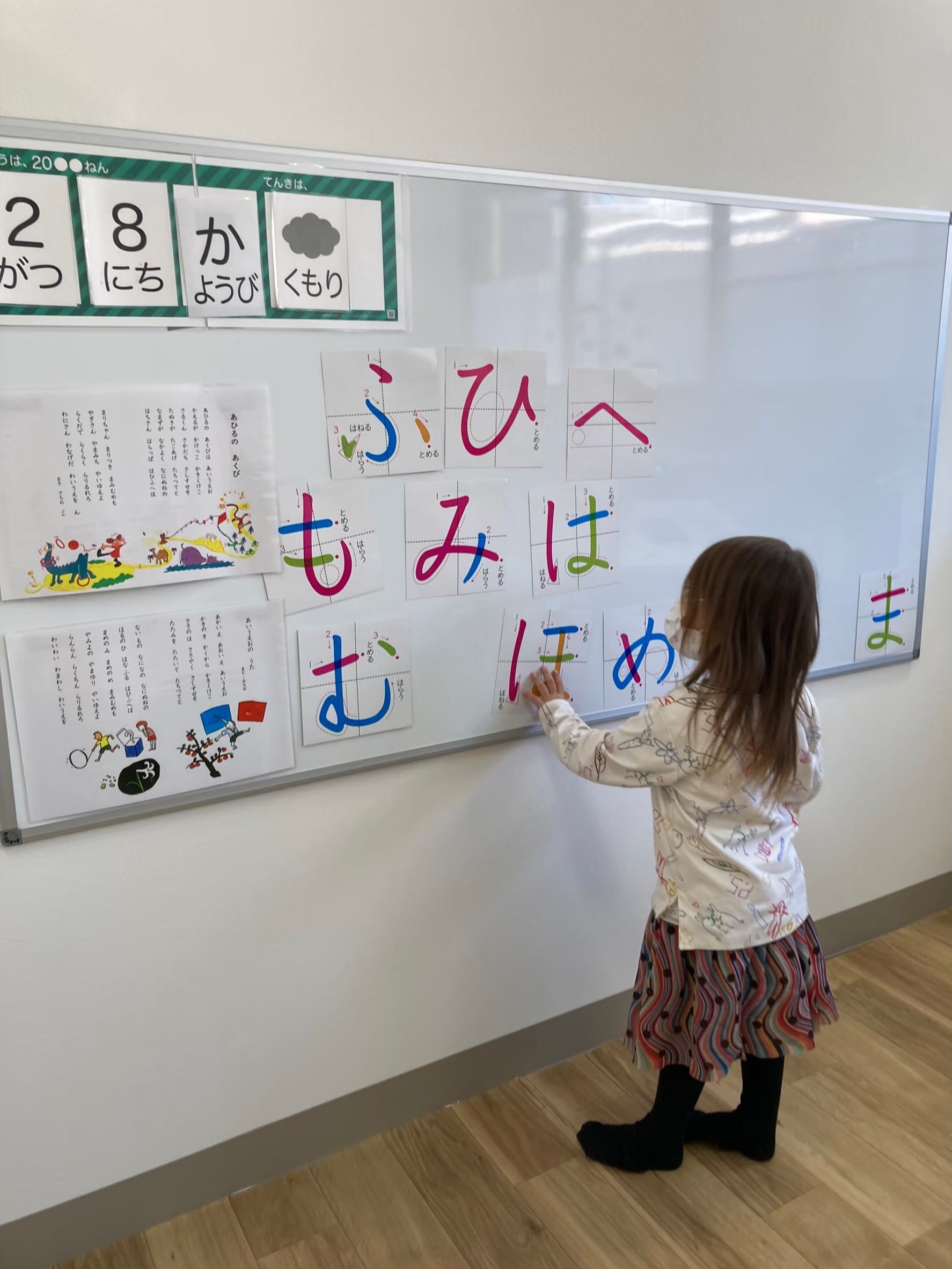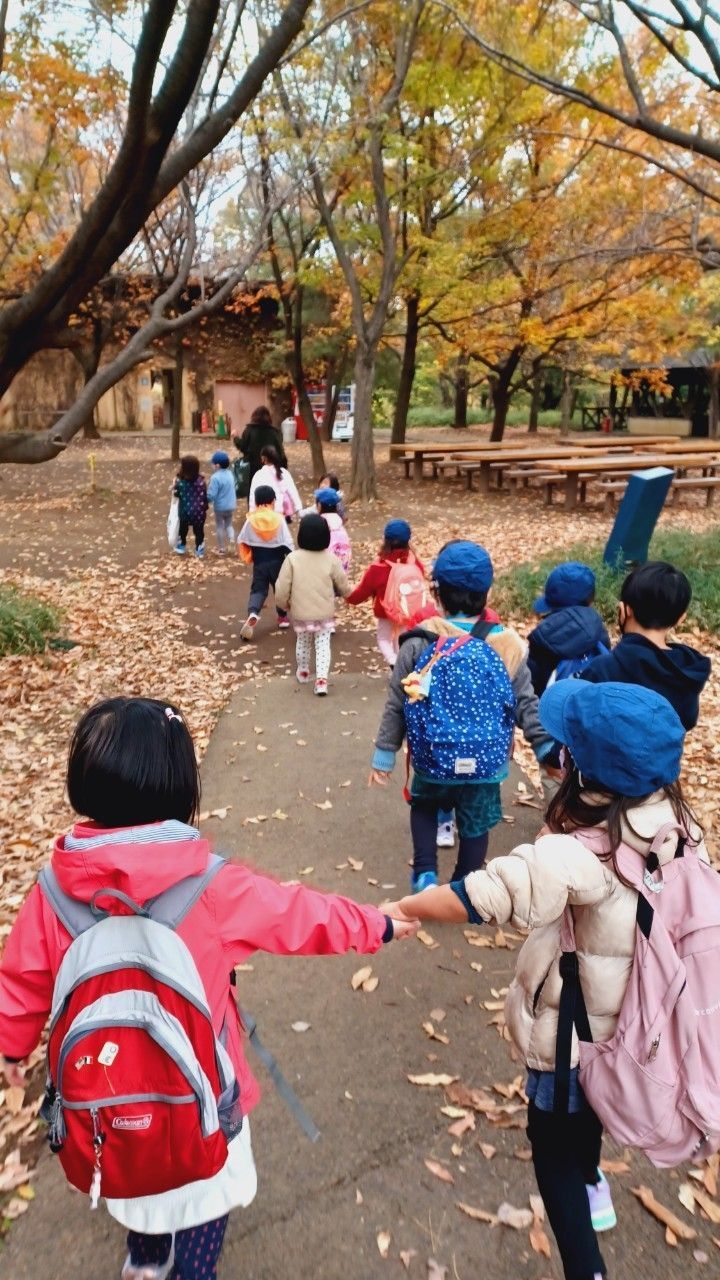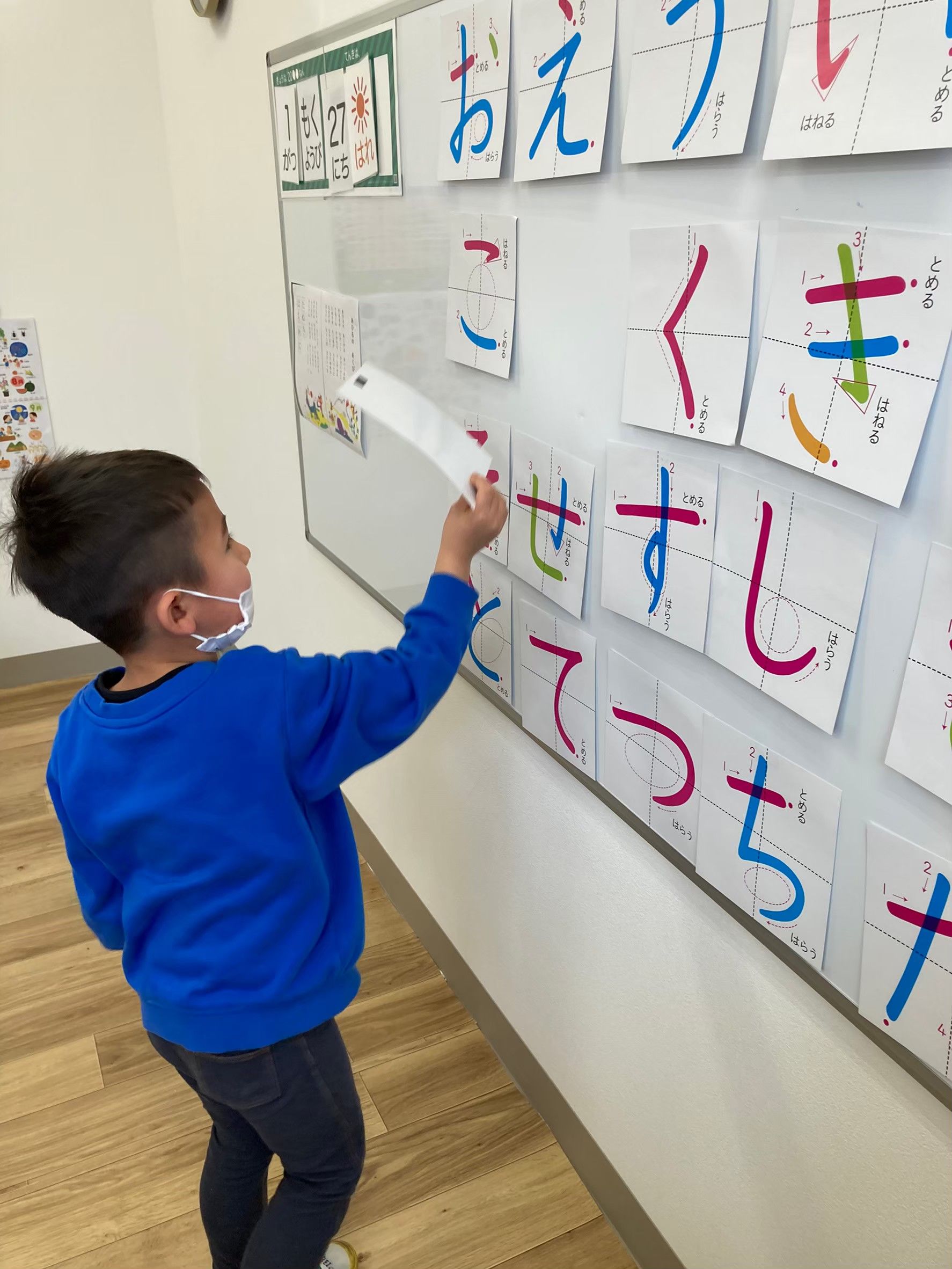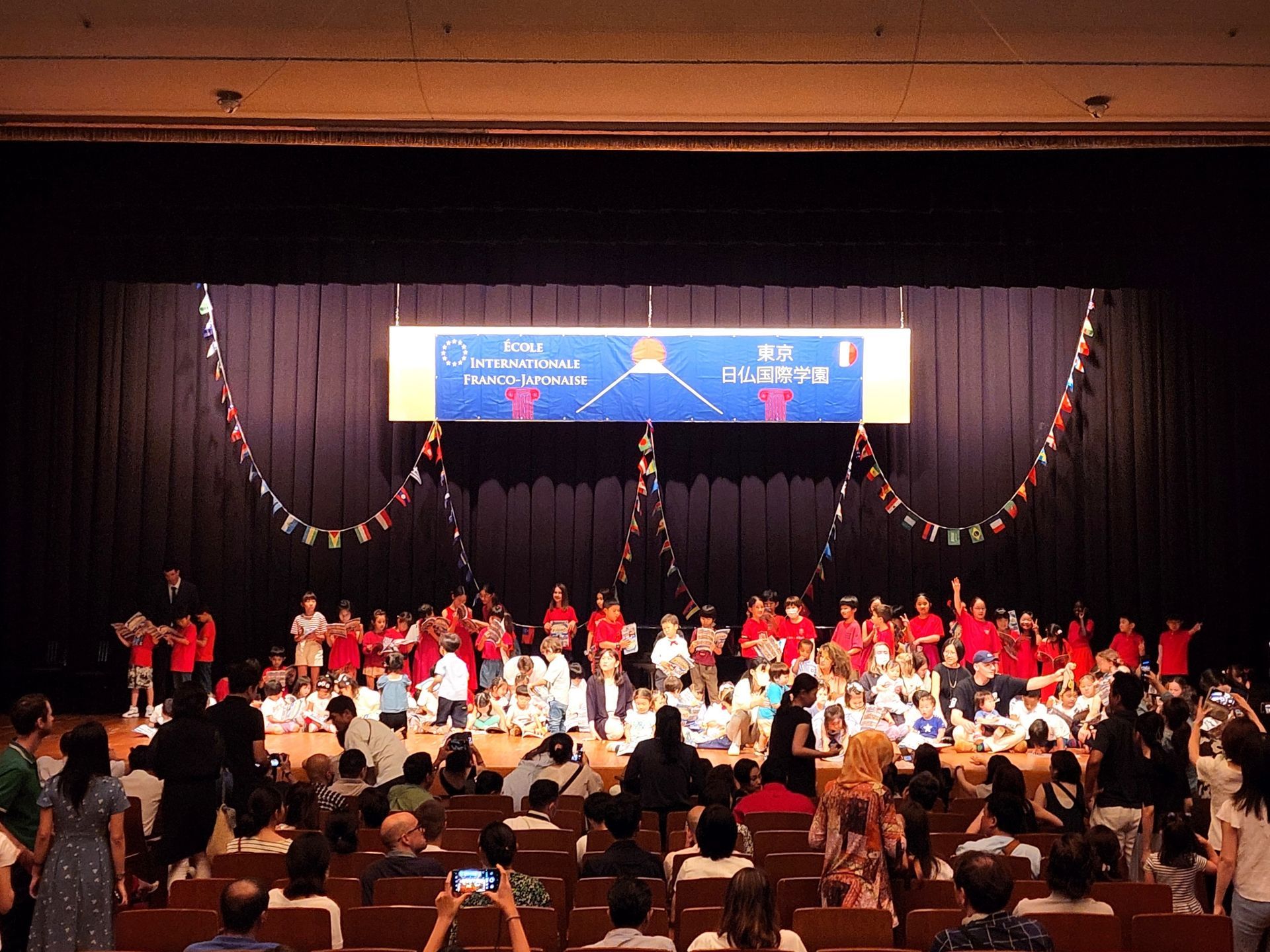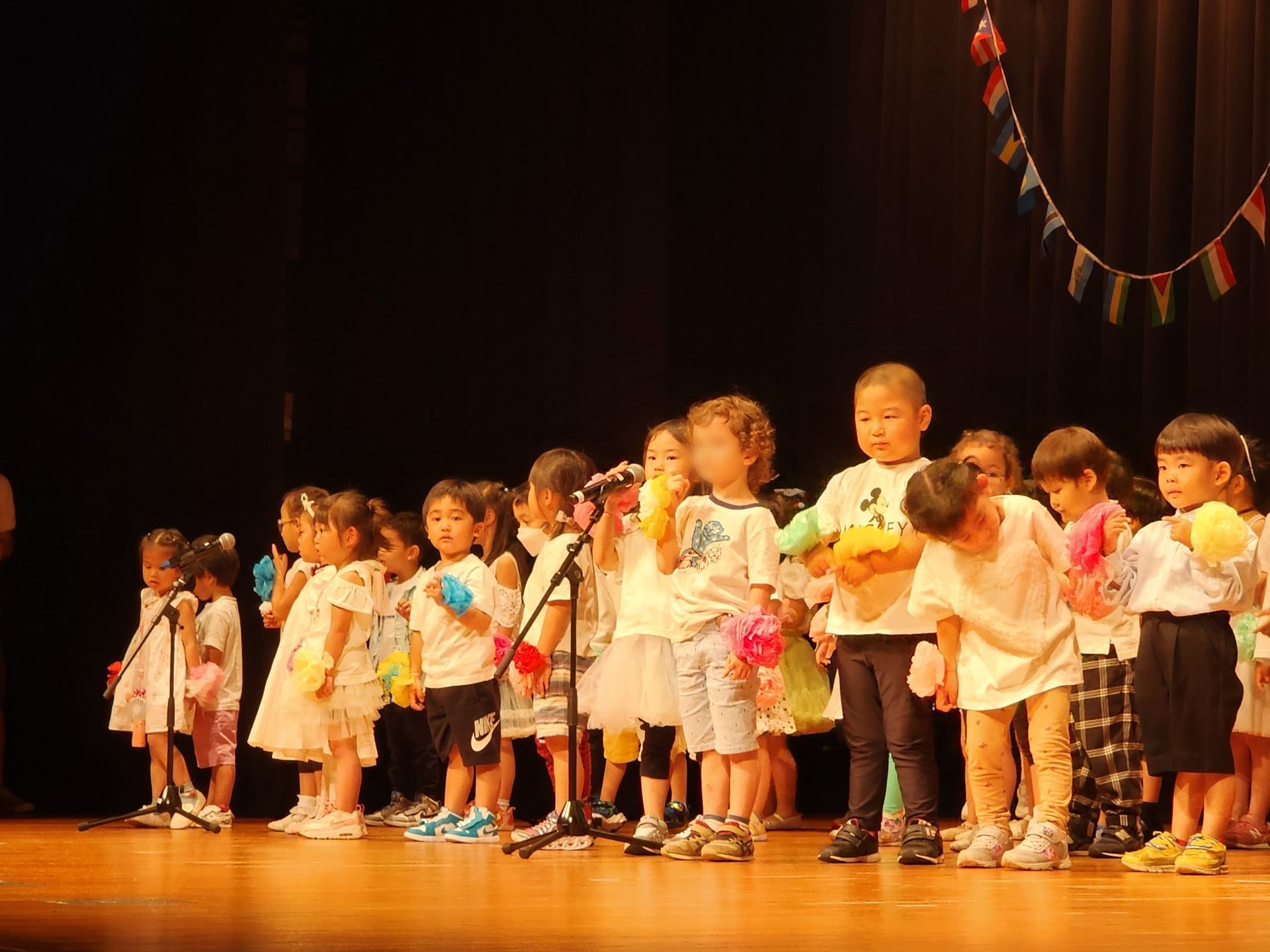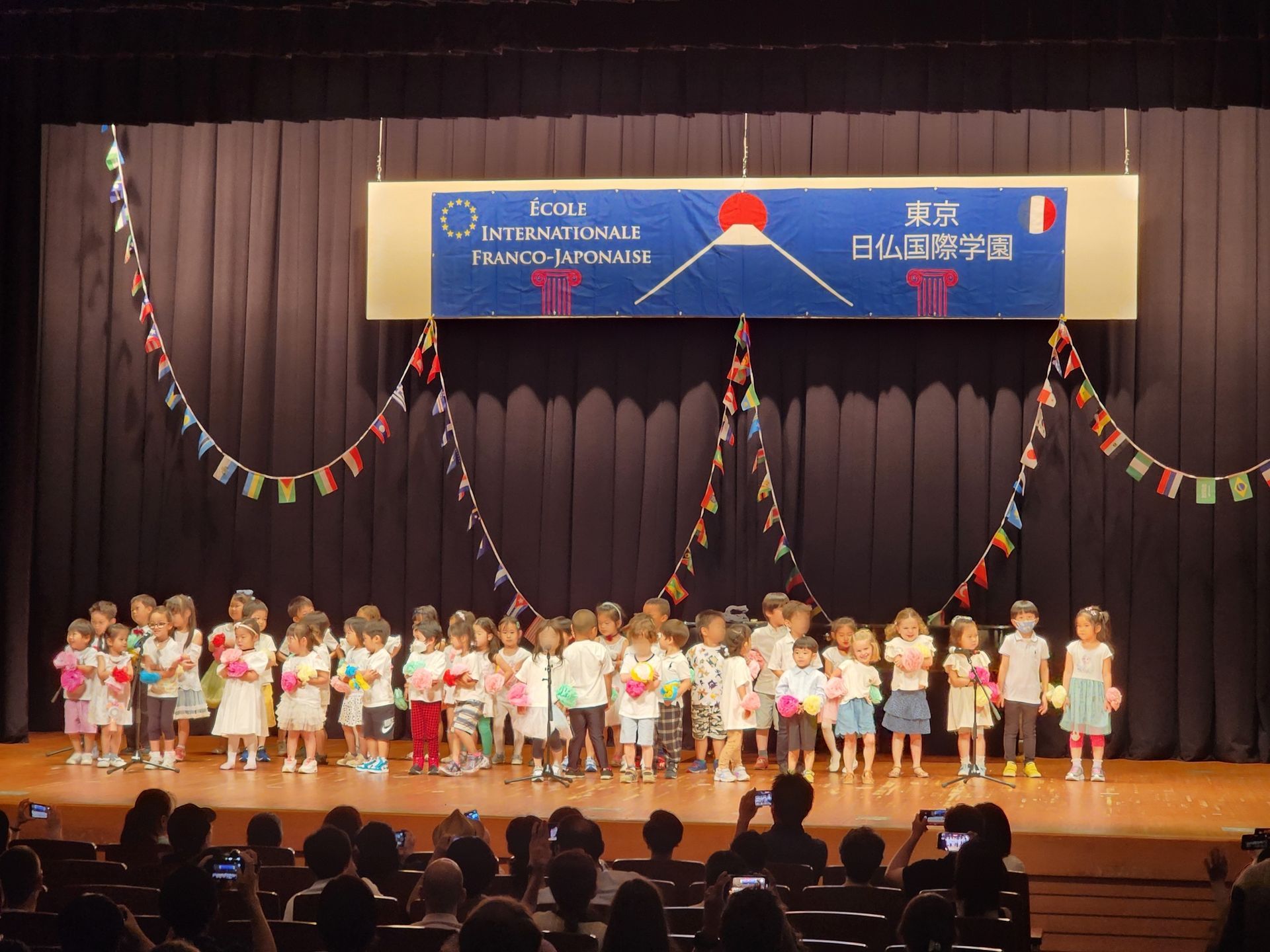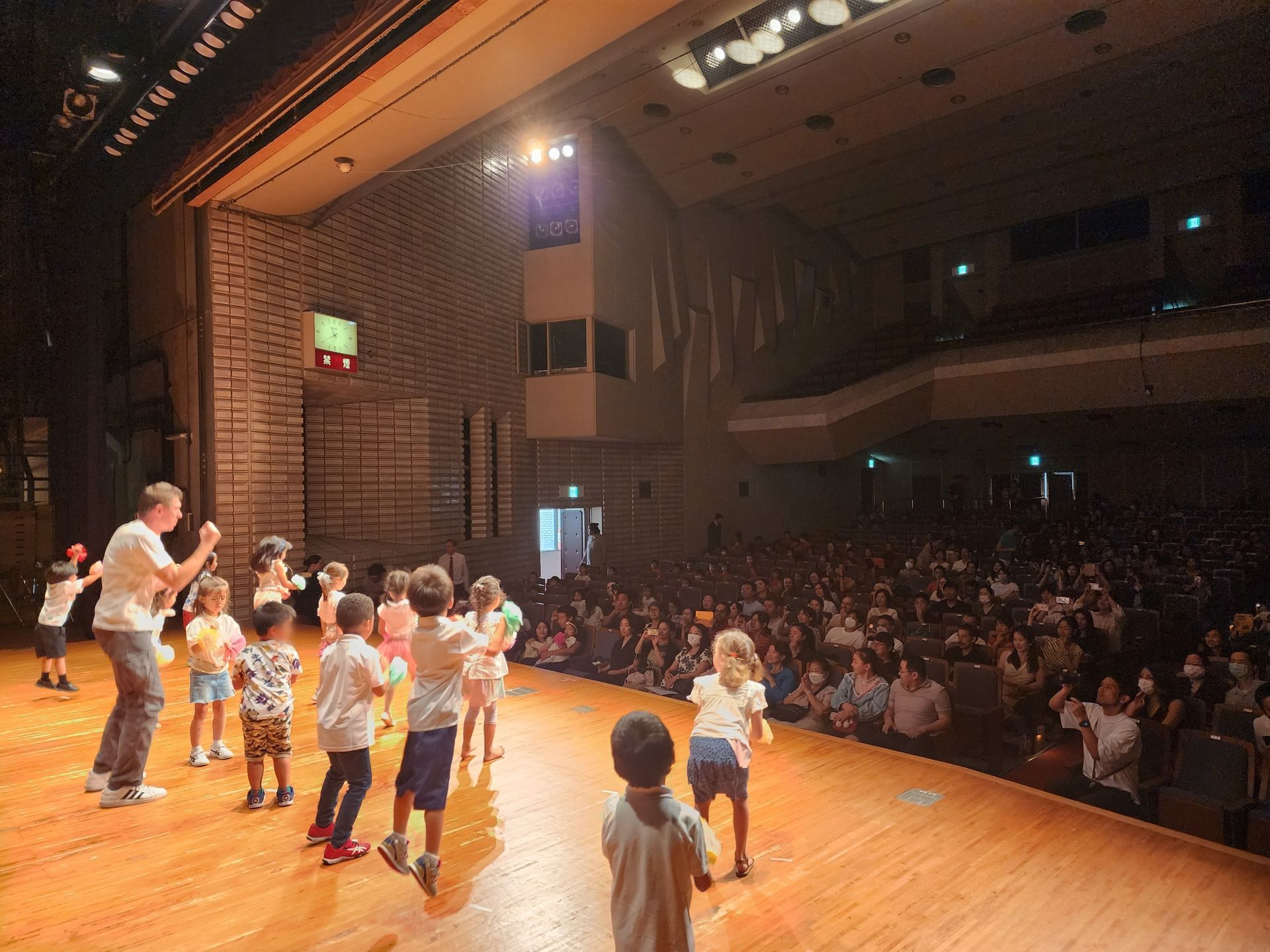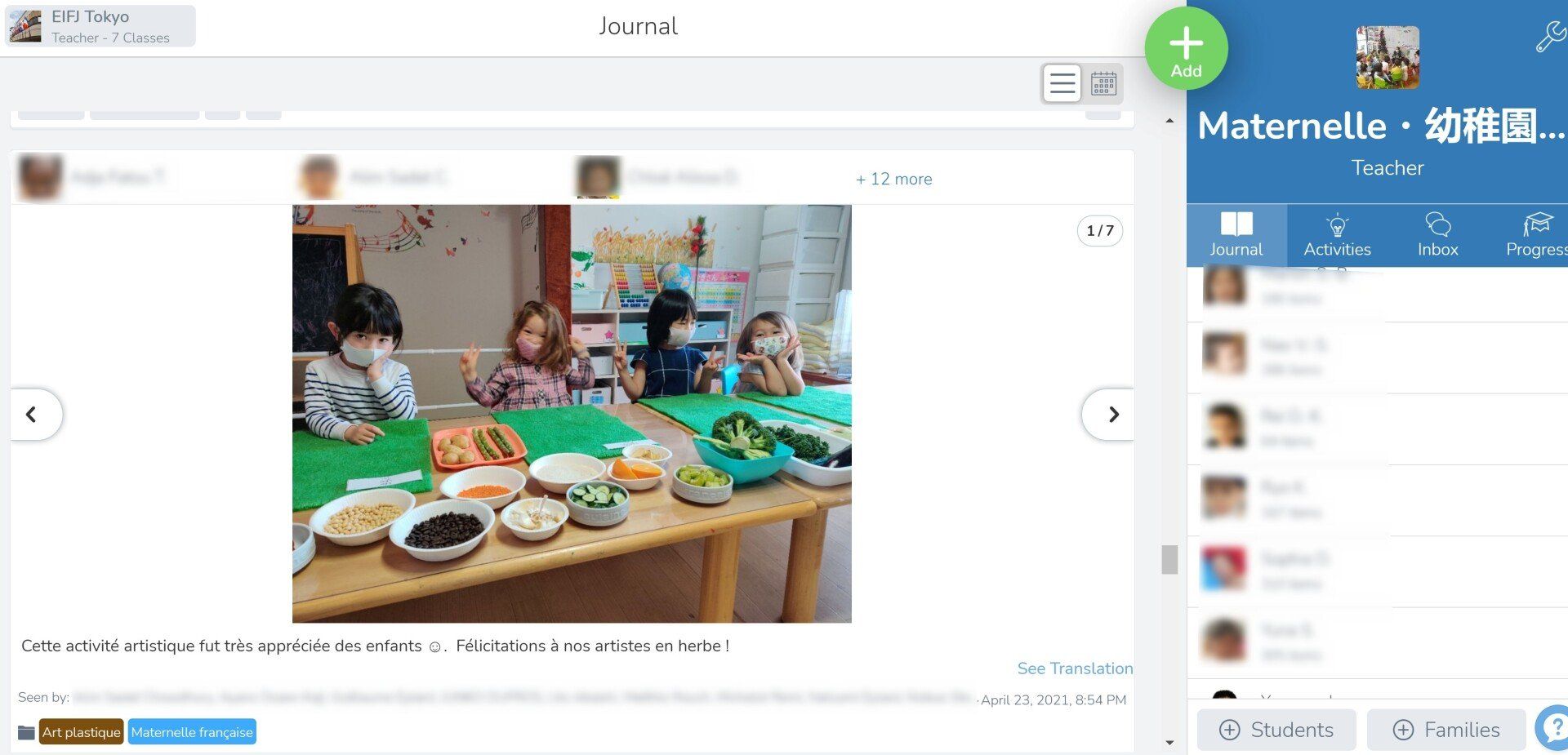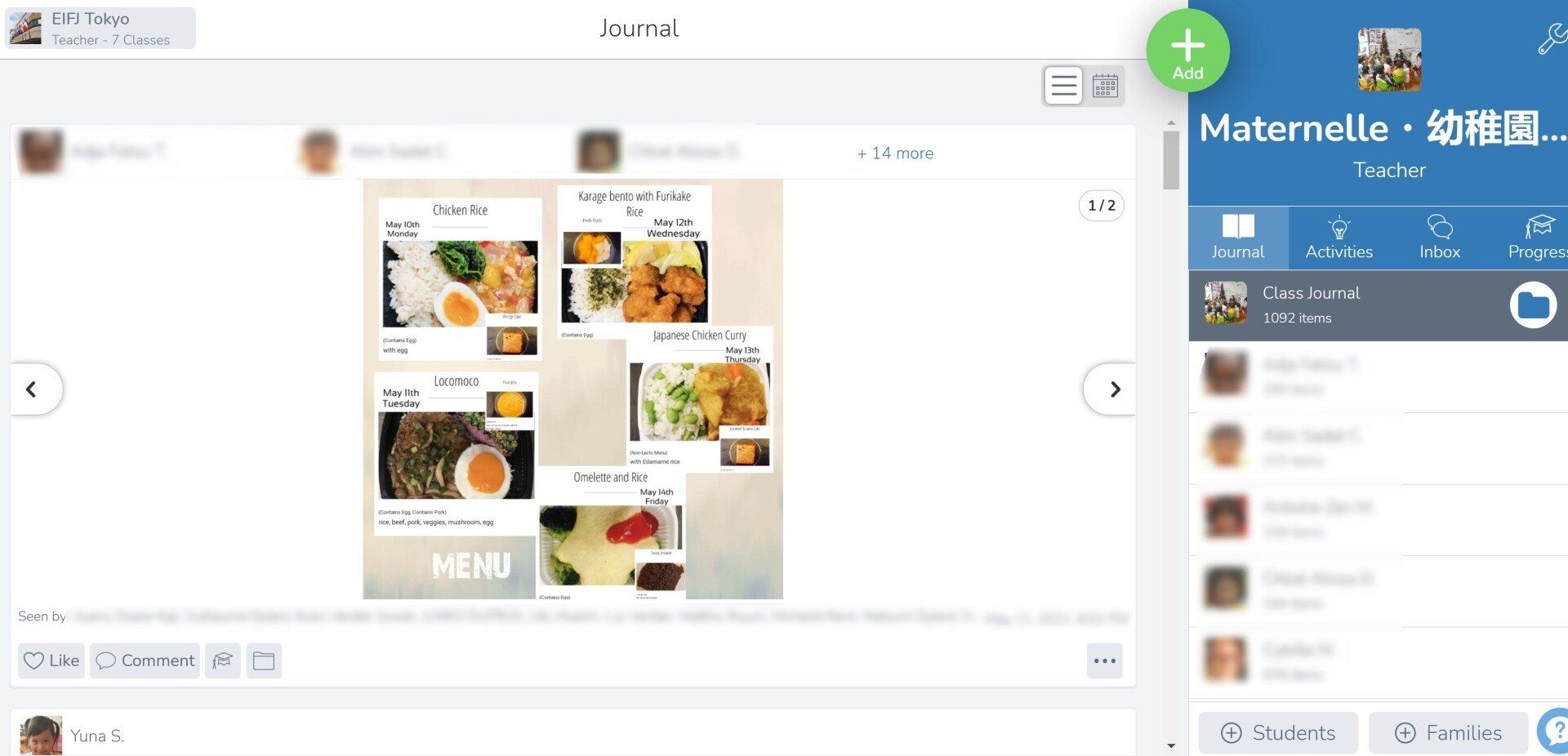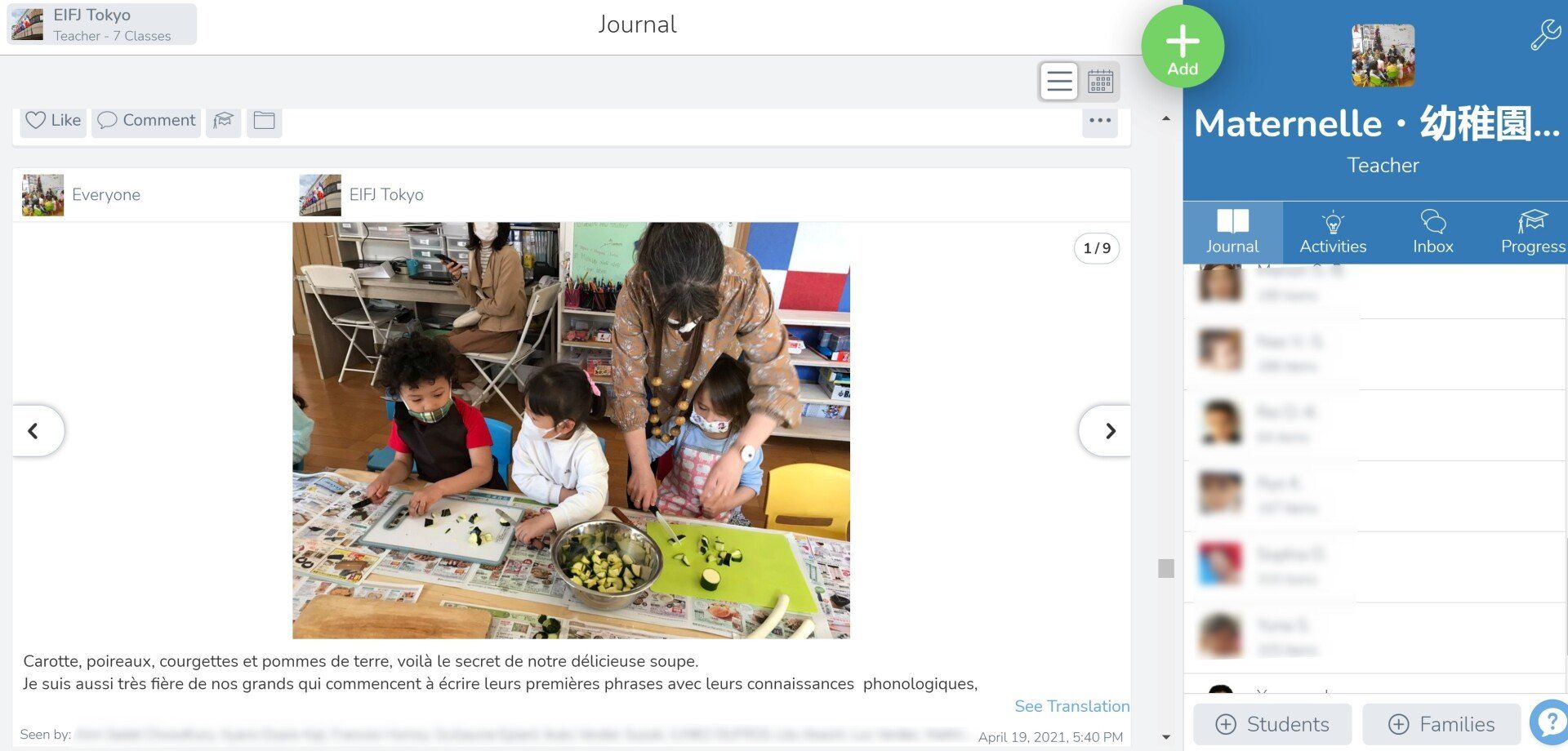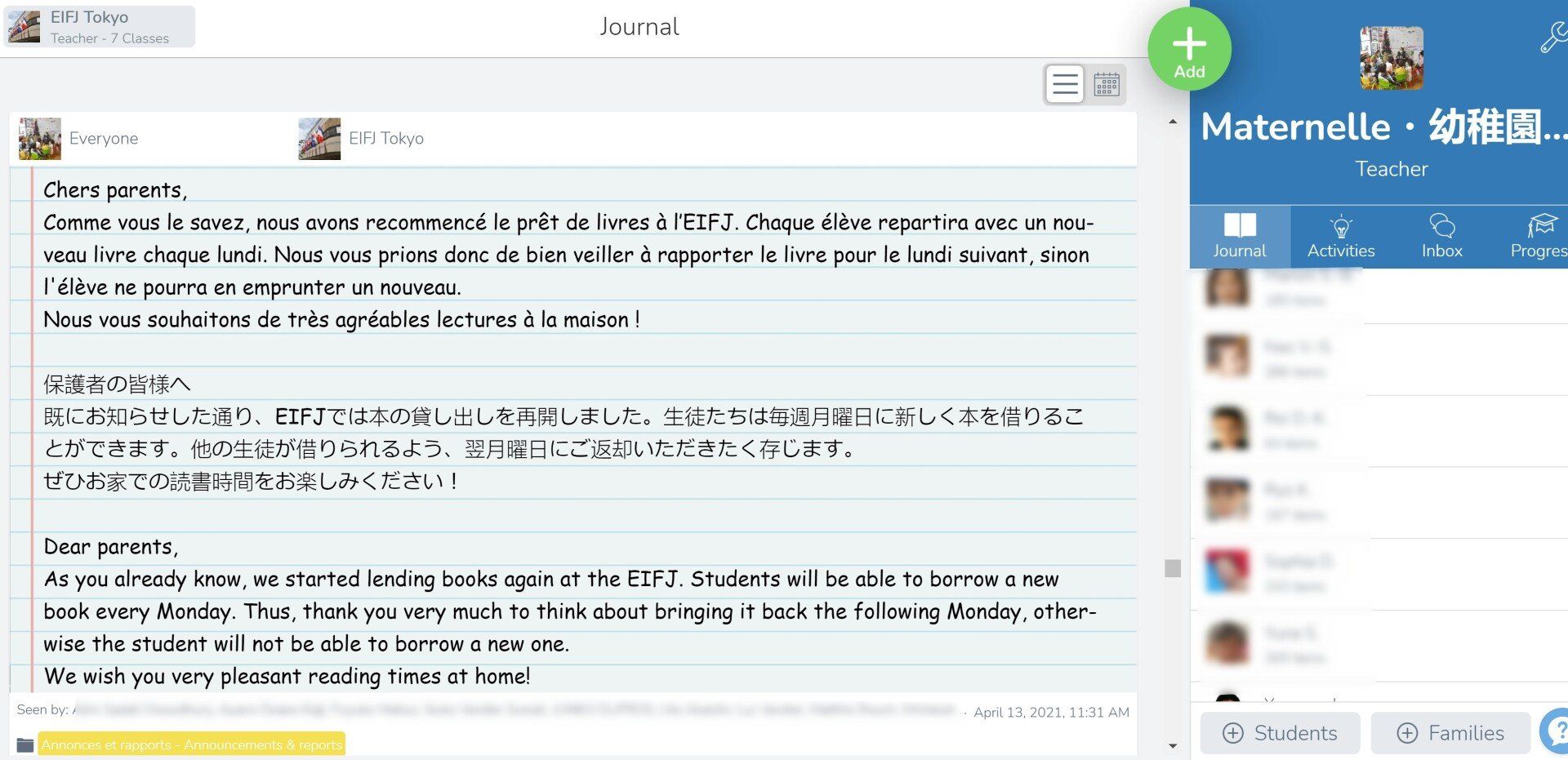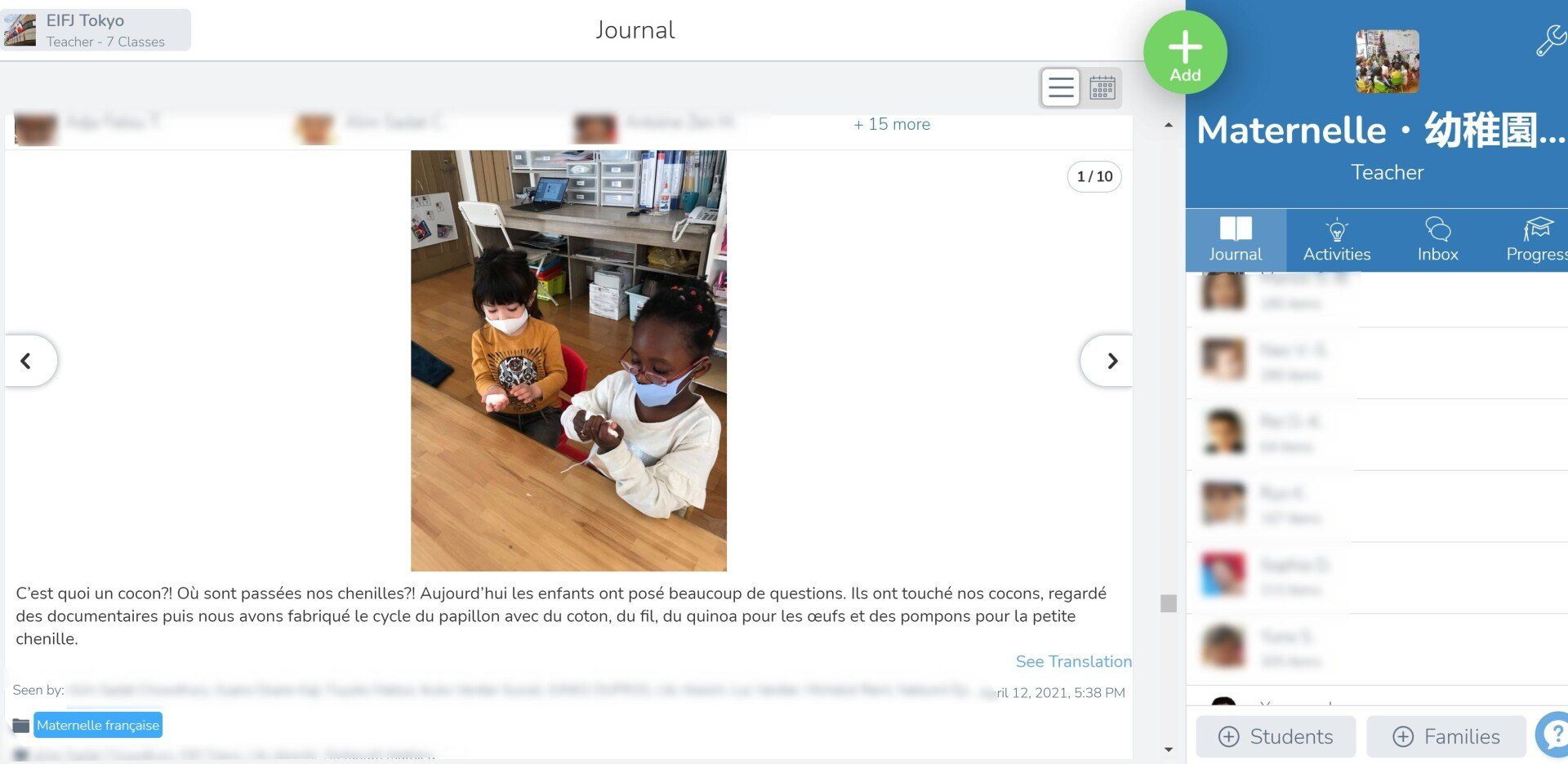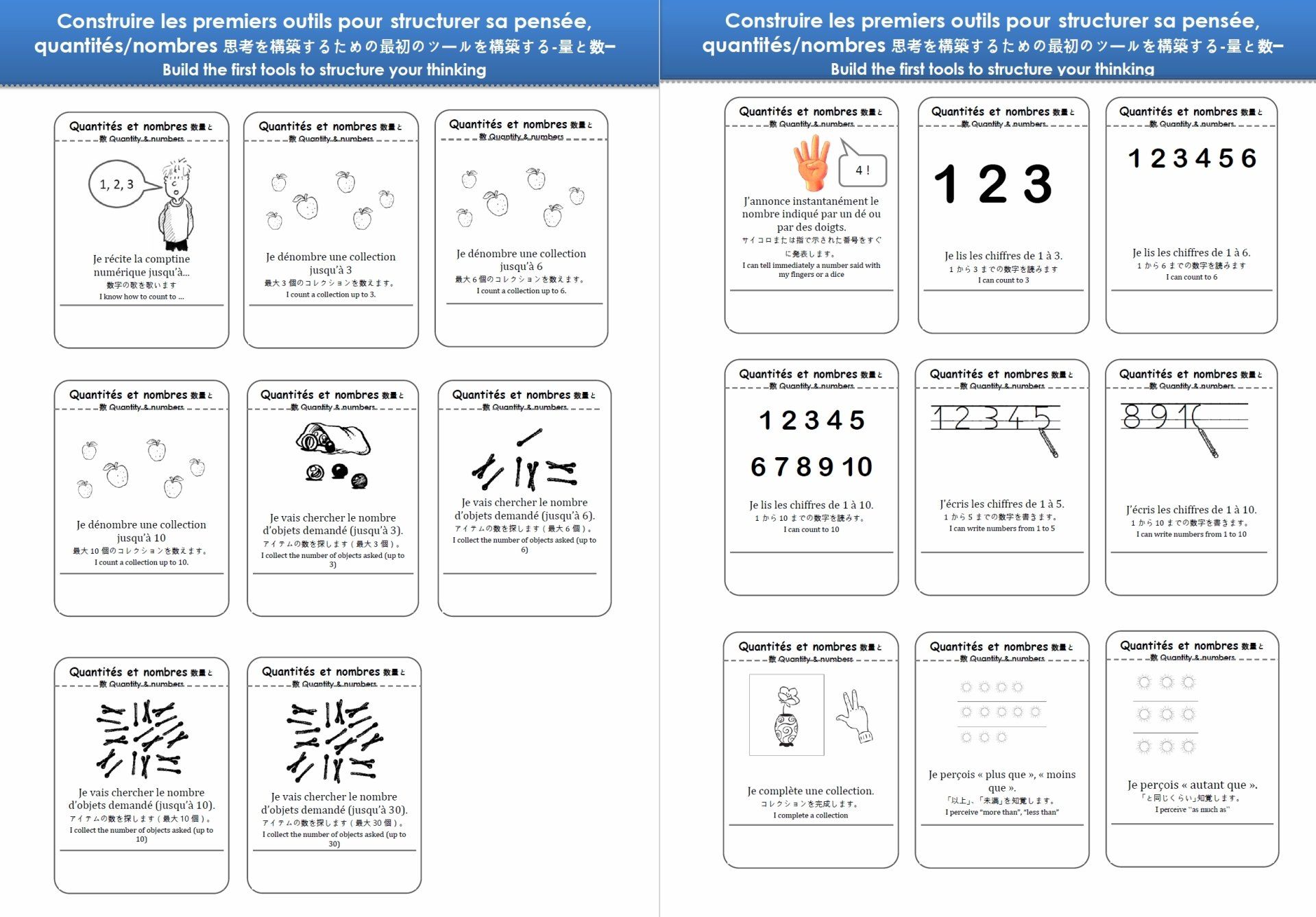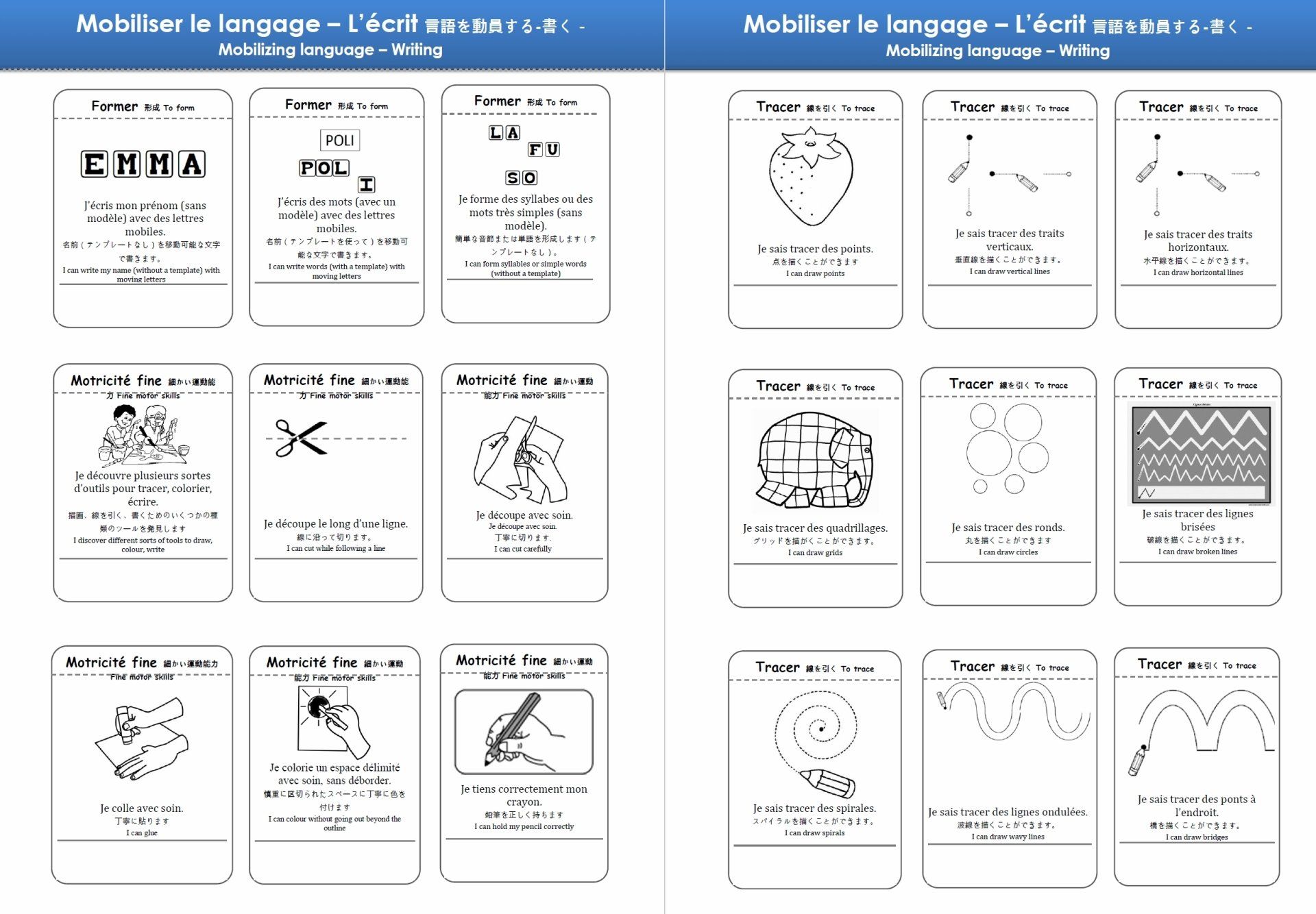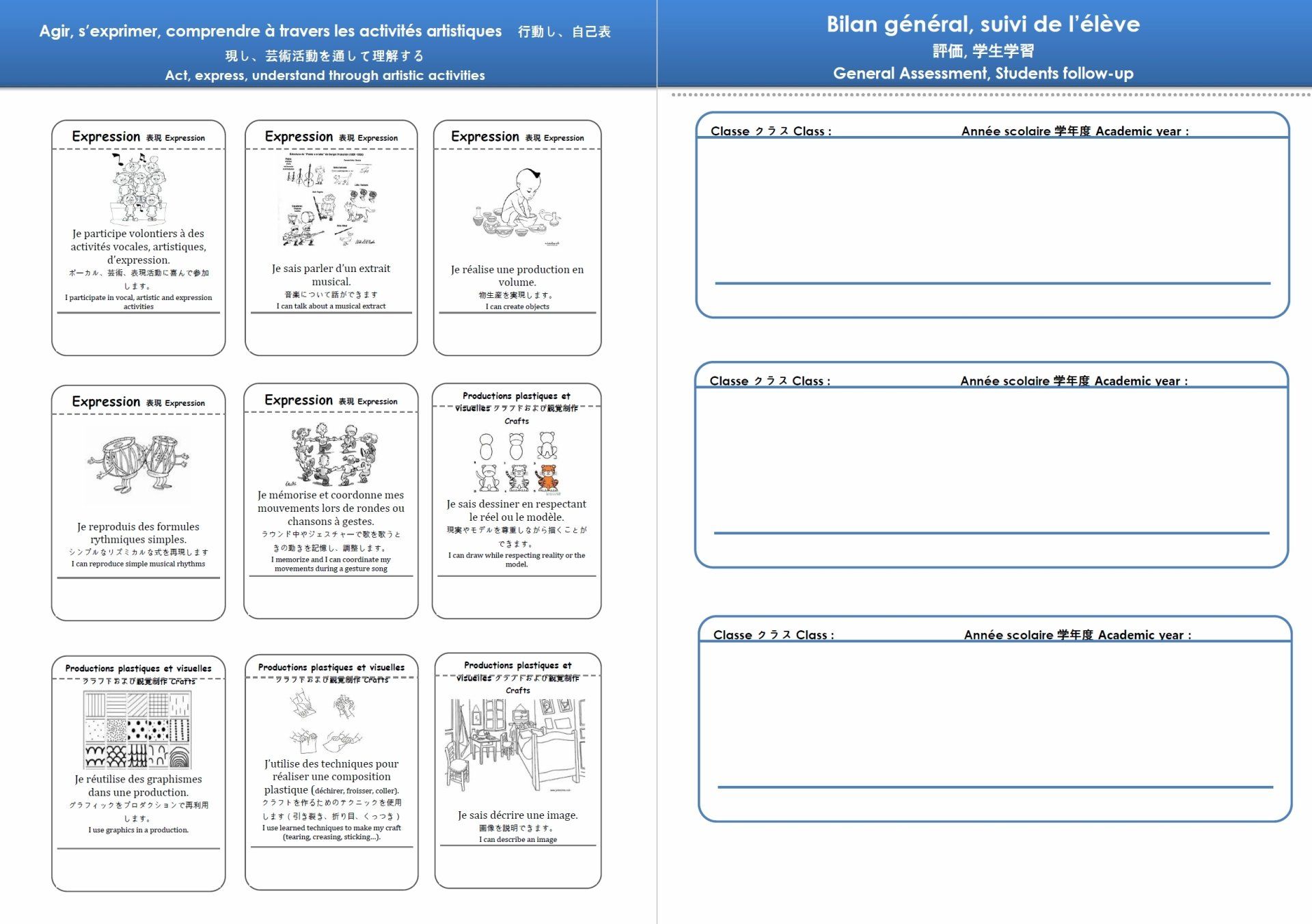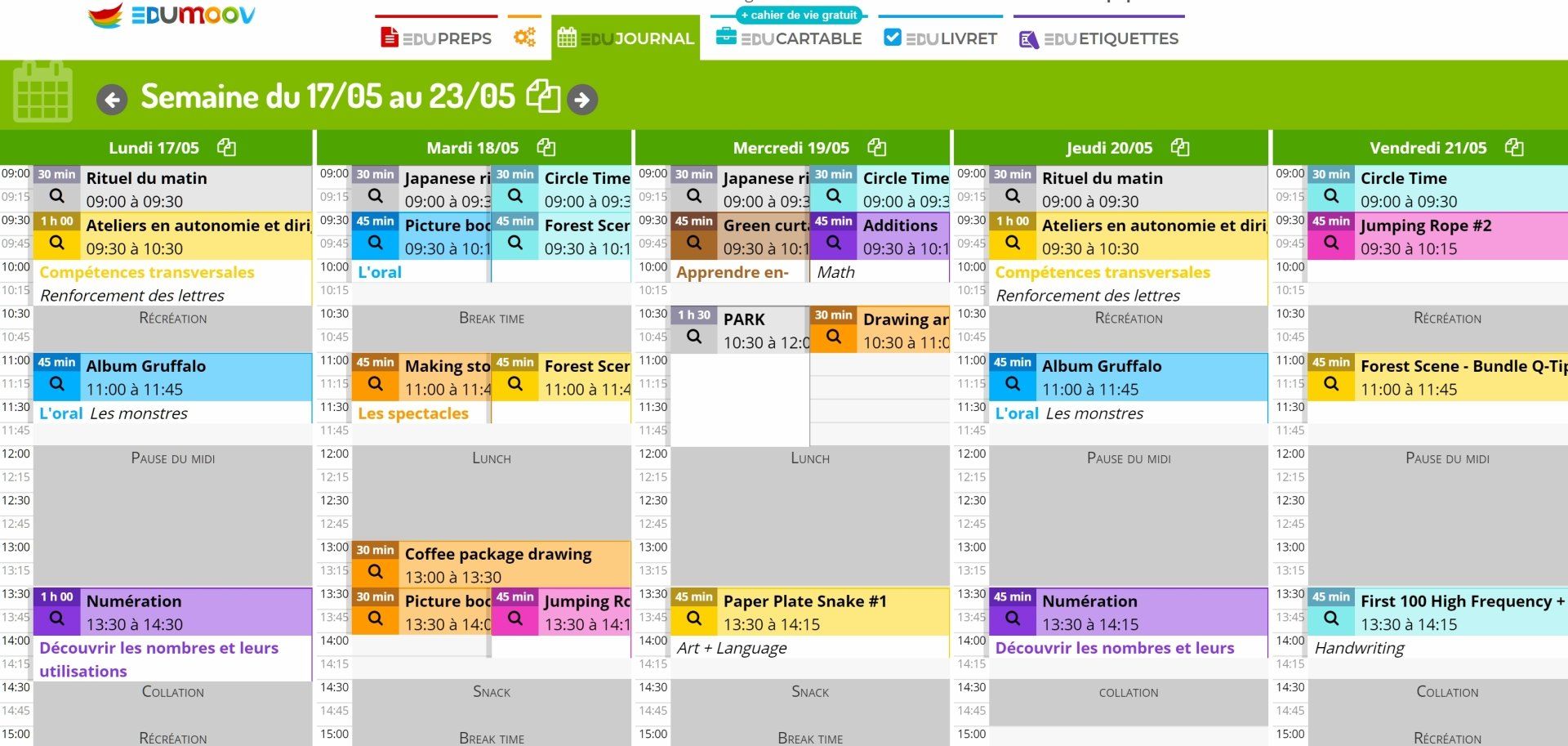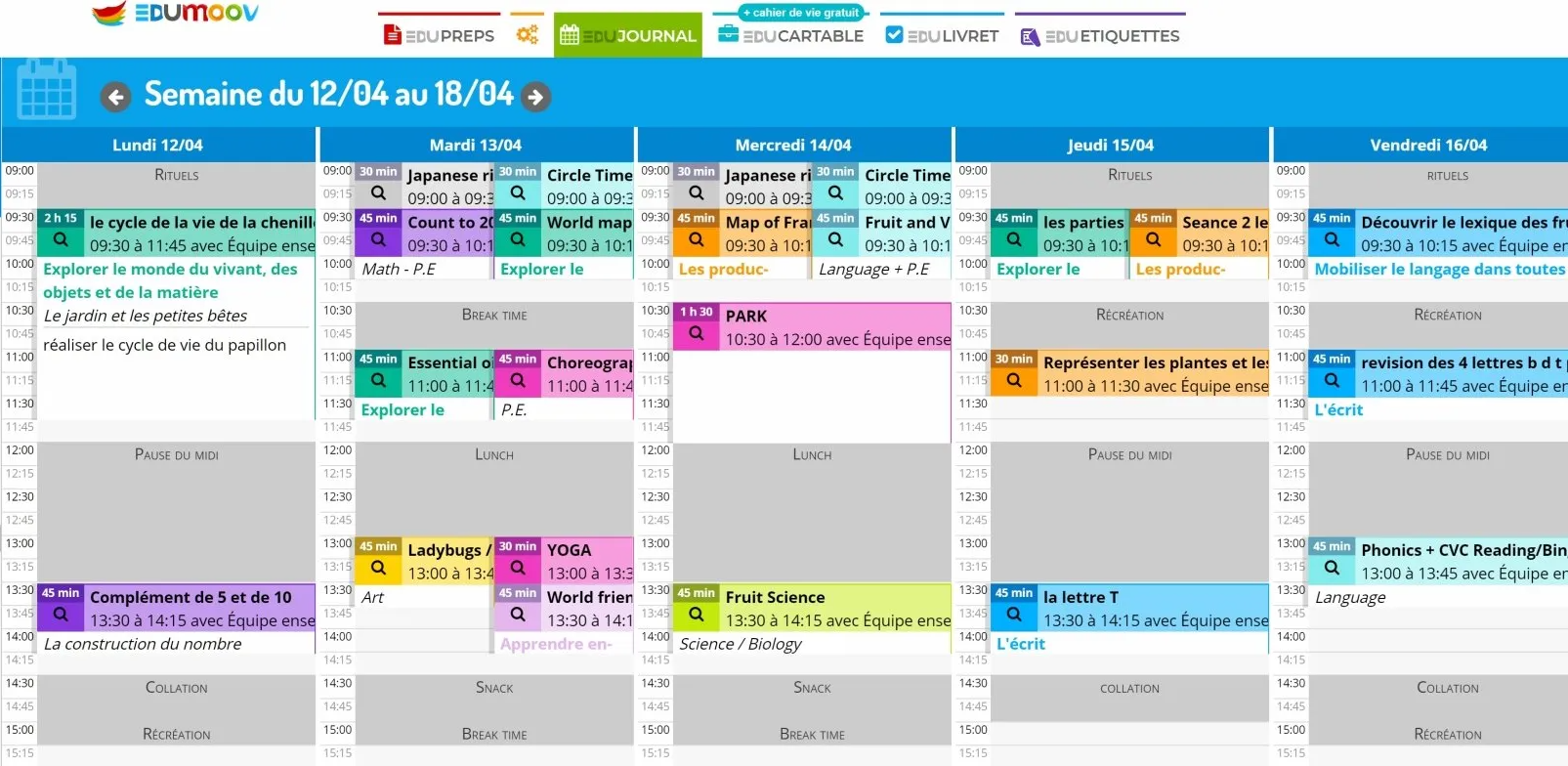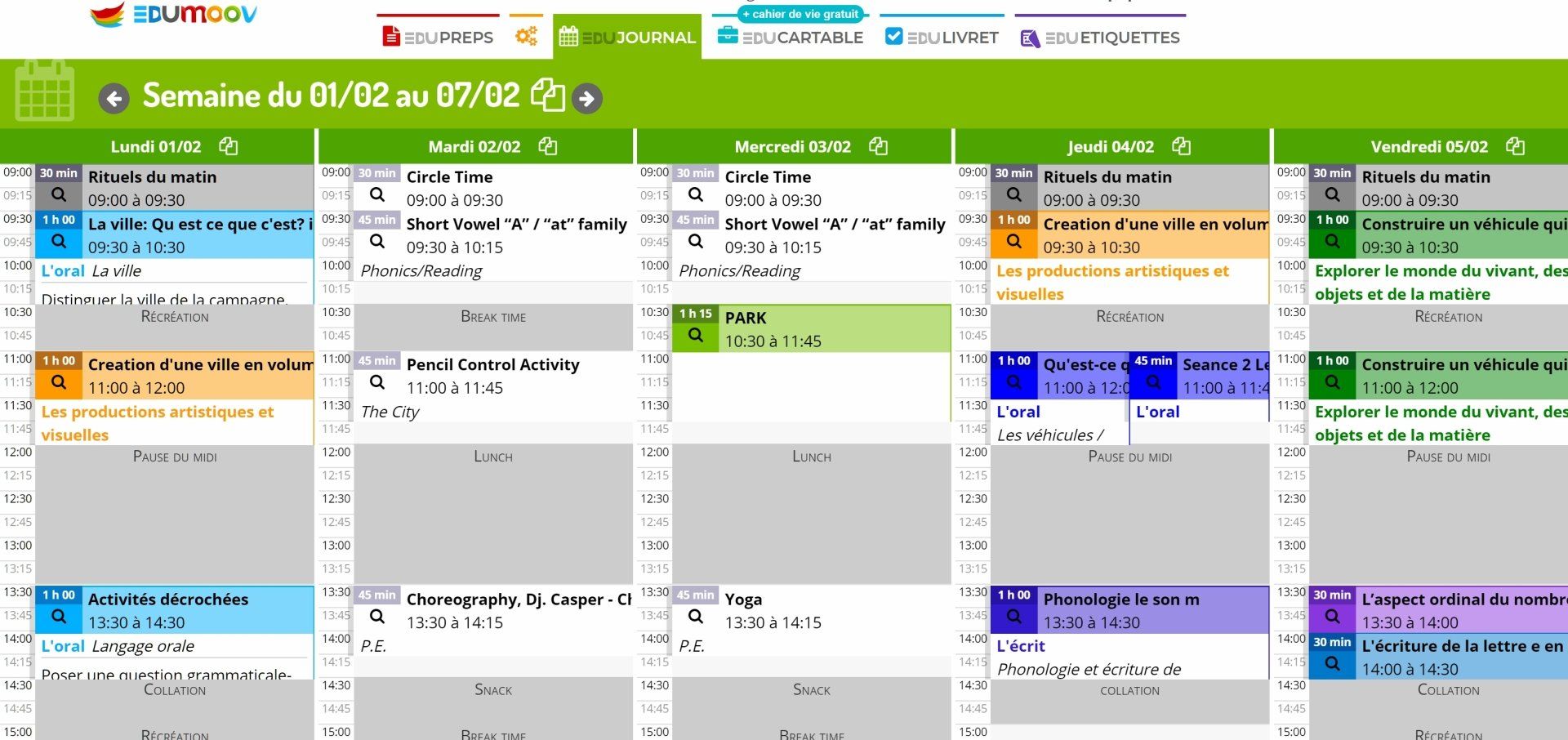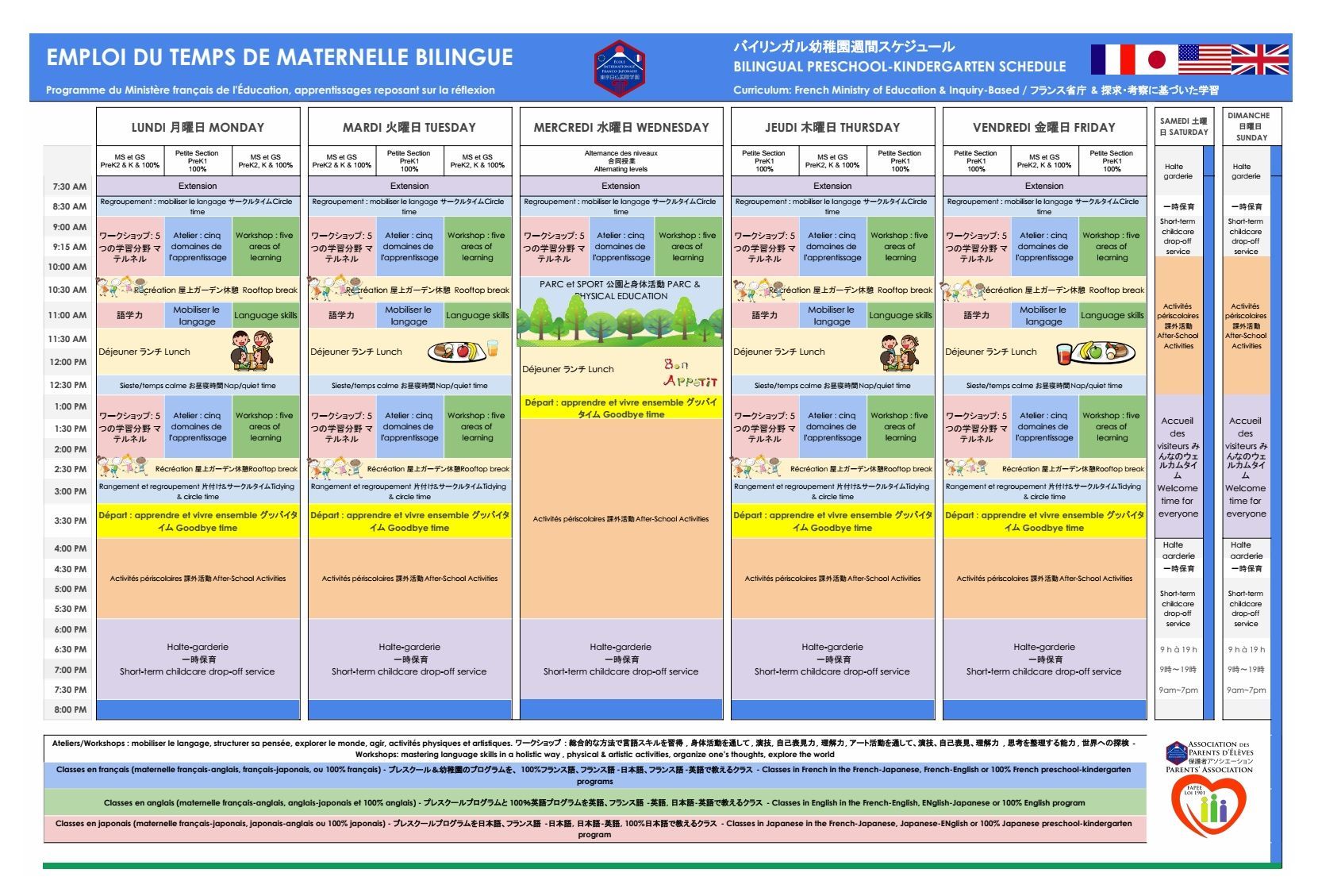FRENCH BILINGUAL PRESCHOOL & KINDERGARTEN
AT THE FRENCH-JAPANESE INTERNATIONAL SCHOOL OF TOKYO
Academic excellence in an encouraging teachers-students' ratio environment
Bilingual French-Japanese or French-English classes
Campus of 200 places
Government scholarships up to the end of 1st Grade (37,000 to 97,000 yen monthly depending on municipalities)
Differentiation and splitting mechanism, progress and successful elementary school entrance
Aiming for all programs' accreditations
Open year-round upon demand (and based on the staff's availability) from 7:30 a.m. to 8 p.m.
A team dedicated to the success of all our students
French Ministry of Education curriculum
Alumni network
BILINGUAL FRENCH-ENGLISH OR FRENCH-JAPANESE PRESCHOOL PROGRAM
(for the academic year 2023-2024, children born in 2018, 2019 and 2020)
EIFJ Tokyo offers bilingual French-English preschool-kindergarten education from PreK1 (Petite Section PS) to Kindergarten (Grande Section GS), in line with the French Ministry of Education curriculum. Of the 24 hours of teaching per week, 12 hours are taught in French and 12 hours in English.
The French-Japanese bilingual program, aimed especially at French-Japanese children aged 3 to 6 whose families want their children to benefit from the excellence of the French Ministry of Education curriculum, includes instruction by our certified Japanese teachers, on an parity basis. Of the 24 hours of teaching per week, 12 hours are taught in French and 12 hours in Japanese.
EIFJ Tokyo also offers your kindergarten child a 100% French program. The 24 hours of weekly teaching in French can be supplemented by extracurricular activities in Japanese and/or English from 4 p.m. onwards.
CURRICULUM
Through the five areas of learning which are, Mobilizing language in all its dimensions, Acting, expressing oneself, understanding through physical activity, Acting, expressing oneself, understanding through artistic activities, Building the first tools for structuring their thinking, Exploring the world, the students develop their autonomy, their knowledge of the world around them, their language, social and motor skills in a class with an excellent teachers-students ratio.
The educational philosophy of EIFJ Tokyo is to place the student in an active situation, at the heart of his learning. The cognitive abilities are constantly stimulated by the implementation of playful activities, adapted to their level, and progressive. The student learns by playing, observing, manipulating and interacting with his classmates and adults who are facilitators, in bright and fully equipped classrooms (projectors, library, teaching materials, etc.)
- The class begins at 8:30 with a circle time (date, weather forecast, songs and rhyme, discussions on different events)
- 9:00: first activity or differentiated workshops around the areas of learning
- 9:45: recess on the secured rooftop, the gym and the library
- 10:15: second activity or differentiated workshop around the learning areas
- 11:30: lunch (meal provided by the family or the EIFJ cafeteria)
- 12:00 ~ 13:30: nap time for students who need (Pre-K)
- 12:30 ~ 13:00: quiet time for other students
- 13:00: workshops
- 13:45 ~ 14:15: recess on the rooftop, gym and library
- Circle time, end of the class at 15:30, and start of after-school activities at 16:00
In addition to our secure, fully-equipped rooftop and the gym, the library contains French, Japanese and English books; board games and a gymnasium are available to students. Each of our students has a logbook in which the teacher records his or her progress and acquisitions, to be given to the family at the end of the school year. Every day, photos and sometimes videos of your child's learning are posted online via an application.
2023-2024 CLASSES
- Kindergarten-1 and 2 class (K1 & K2 : ages 3 & 4)
- Kindergarten 5 class (K5 : ages 5)
- Bilingual, 100% English, French or Japanese classes
Examples of pedagogical projects undertaken in the Fall term 2023-2024:
- European Sustainable Development Week in Cycles 2 and 3 (Grades 1 to 5)
- Sep 28 World Maritime Day in Cycle 4 (Middle School)
- Oct 14 National Air Quality Day in Cycle 4 (Middle School)
- Oct 16 World Food Day in all cycles (Preschool Elementary & Middle School)
- Oct 17 International Day for the Eradication of Poverty in Cycle 4 (Middle School)
- Oct 2 to Oct 18 Climate Week in Cycles 3 and 4 (Grades 4 to 7)
- Nov 11 to Nov 26 European Week for Waste Reduction in Cycle 4 (Middle School)
- Nov 29 International Children's Rights Day in all cycles (Preschool Elementary & Middle School)
- Dec 20 International Human Solidarity Day in Cycles 2, 3 and 4 (Grades 1 to 7)
2024-2025 CLASSES
- Kindergarten-1 and 2 class (K1 & K2 : ages 3 & 4)
- Kindergarten 5 class (K5 : ages 5)
- Bilingual, 100% English, French or Japanese classes
Depending on the increase in the students' headcount, single-grade classes will be created.
Nationalities of students attending EIFJ's programs in September 2023: French, Belgian, German, Poland, Irish, French-Japanese, French-Chinese, Singhalese, Japanese-Chinese, Chinese, Japanese, Nigerian, Korean, Ivory Coast, American, Mongolian, Canadian, Australian, Vietnamese, Malaysian.
CALENDAR
Classes are held five days per week, Monday to Friday. Although we highly encourage, for obvious pedagogical reasons, students to attend all weekly classes (termly or annual tuition fees), it is possible to attend classes on a short-term childcare basis (hourly fees). The calendar is based on the French academic calendar, which is similar to other international schools' calendars. The school may open upon demand (and subject to availability of the staff) at 7:30 a.m. and close at 8 pm. EIFJ is closed during Japanese public holidays (short-term childcare is possible all-year-round, though, upon demand). Lessons are not provided during the term breaks, but very popular holiday schools are organized.
To read our terms and fees, and information about scholarships, please click here.
ORGANIZATION OF SPACE
Welcome to classrooms vibrant with color and discovery! For us, the layout of spaces plays a key role in the development of our little learners. Discover how each corner has been carefully designed to promote autonomy and stimulate the curiosity of our students.
🍳 Kitchen Corner: In our kitchen corner, budding chefs explore the world of gastronomy. This space encourages collaboration, sharing and the development of fine motor skills. Children learn to reproduce reality, to create delights while strengthening their autonomy.
📚 Reading Corner: A comfortable corner filled with literary treasures! Here, our little readers explore imaginary worlds, develop their vocabulary and strengthen their ability to concentrate. The reading corner also stimulates a love of reading and encourages independence in choosing books.
🎨 Plastic Arts Corner: Artistic expression at its best! Our budding artists explore different textures, colors and shapes, promoting the development of their creativity and artistic skills. It is a space where artistic autonomy takes flight.
✏️ Writing Corner: Future writers explore the world of writing in this dedicated corner. By using a variety of media, our students develop their fine motor skills, write their first letters and discover the pleasure of expressing their ideas on paper.
🤝 Circle Time Corner: The ideal meeting point to share our discoveries and exchange our ideas. The group corner promotes the development of social skills, attentive listening and reinforces the feeling of belonging to an educational community.
🎨 Autonomous Workshop Space: A space dedicated to individual creativity! Children explore various independent workshops, strengthening their ability to choose their activities, work independently and develop specific skills.
📸 Trombinoscope: A wall full of smiles! The Trombinoscope creates a visual connection between everyone in our class, fostering an inclusive environment and encouraging face recognition to reinforce a sense of safety and familiarity.
🎲 Games Space: Learning through games is at the heart of this space! Children develop social skills, solve problems, and learn from each other in a fun way.
With us, each corner has a specific objective: to promote autonomy, stimulate creativity and encourage exploration. Together, let's create an environment where every child can grow, learn and thrive at their own pace.
Preschool-Kindergarten: a single cycle, fundamental to success for all
The French law on the refoundation of the school system creates a single cycle for preschool-kindergarten, underlining its fundamental role as the first stage in guaranteeing the success of all students within a school that is fair to all and demanding for everyone.
- Kindergarten is organized into 3 levels:
- PreK1: 3 years old, PreK2 : 4 years old, Kindergarten : 5 years old
- Daytime class: from 8:30 to 15:30, with two breaks
- One full-time teacher + assistants
- This period of schooling establishes the educational and pedagogical foundations on which pupils' future learning is based and developed throughout their entire schooling.
- The preschool-kindergarten adapts to young children, organizes specific learning modalities, and enables children to learn together and live together.
- Kindergarten is part of elementary school, but has its own rhythm and organization.
- A very specific rhythm: the main aim of kindergarten is to develop pupils' autonomy and language skills, gradually moving children from the area of the home to the area of the classroom and school, and getting into the 5 specific areas of kindergarten activity.
- First domain of learning:: Mobilizing language in all its dimensions. The main aim of kindergarten is to acquire organized, varied and comprehensible oral language for classroom activities. Children thus establish relationships with other children and with adults, learn to communicate during the various learning activities, listen, speak with others, give their opinion, their point of view, build logical reasoning.
- Second domain of learning: Acting, expressing oneself, understanding through physical activity. Physical and artistic activities contribute to children's motor, sensory, emotional, intellectual and relational development. These activities mobilize, stimulate and enrich the imagination, and provide an opportunity to experience new emotions and sensations. They enable children to explore their physical possibilities, broaden and refine their motor skills, and master new balances. They help them to build their laterality, an oriented image of their own body, and to better situate themselves in space and time.
- Third domain of learning: Acting, expressing oneself, understanding through artistic activities. This area of learning refers to the visual arts (painting, sculpture, drawing, photography, film, comics, graphic arts, digital arts), the sound arts (songs, instrumental and vocal music) and the performing arts (dance, theater, circus arts, puppetry, etc.).
- Fourth domain of learning: Building the first tools for structuring thought. Since birth, children have had an intuition for size, enabling them to compare and evaluate lengths (sizes) and volumes, as well as collections of various objects ("there's a lot", "there's not much"...). By the time they reach kindergarten, they can distinguish small quantities - one, two and three - especially when they form culturally familiar configurations (dominoes, dice). Lastly, while they can recite the beginnings of the numerical sequence, this recitation does not reflect a true understanding of quantities and numbers.
- Fifth domain of learning: Exploring the world. From birth, through their exploratory activities, children intuitively perceive certain spatial and temporal dimensions of their immediate environment. These perceptions enable them to acquire an initial set of landmarks in their living environments, and to develop expectations and memories of the recent past. However, this knowledge remains implicit and limited. Pupils begin to count, classify objects, order and describe the world around them in their own words.
- Newsletters: when? How many?
- Expectations at the end of kindergarten - booklet - end of Kindergarten
- Periodic assessments
- K/Grade 1: diagnostic assessment
- Expectations at the end of K for entry into Cycle 2 (Grade 1):
- Students who can communicate
- Students who are socialized
- Pupils who are stimulated
Livrets individuels 個別の冊子 Individual Booklets
Maternelle : pour rassurer les parents encore plus sur la vie quotidienne à l'école de leurs enfants, tous les élèves de 3 et 4 ans (Petite et Moyenne Sections) disposent d'un livret individuel permettant de rapporter aux parents des informations détaillées sur l'humeur de leur enfant chaque jour, la qualité de leur sieste, les activités pédagogiques, ainsi que des détails sur l'apétit, le passage aux toilettes etc. EIFJ Tokyo : toujours plus, toujours mieux pour les élèves et leurs parents.
幼稚園:親御さんがお子様の学校生活について安心できるよう、3歳および4歳の全ての生徒(プティット・モワンヌセクション)には、毎日の様子を保護者と共有できる個別の冊子があります。これにはお子様の気分、お昼寝の質、教育活動、食欲、トイレの利用などに関する詳細情報が含まれています。EIFJ東京は、生徒と保護者のために常にさらに向上し、より大きな発展を目指しています。
International Preschool: To provide even more reassurance to parents about their children's daily life at school, all 3 and 4-year-old students (Petite and Moyenne Sections) have an individual booklet that allows detailed information to be shared with parents daily. This includes their child's mood, the quality of their nap, educational activities, as well as details about their appetite, restroom, and more. EIFJ Tokyo: always striving for more, always striving for better, serving students and their parents.

EXTRACTS FROM THE BIMONTHLY NEWSLETTERS
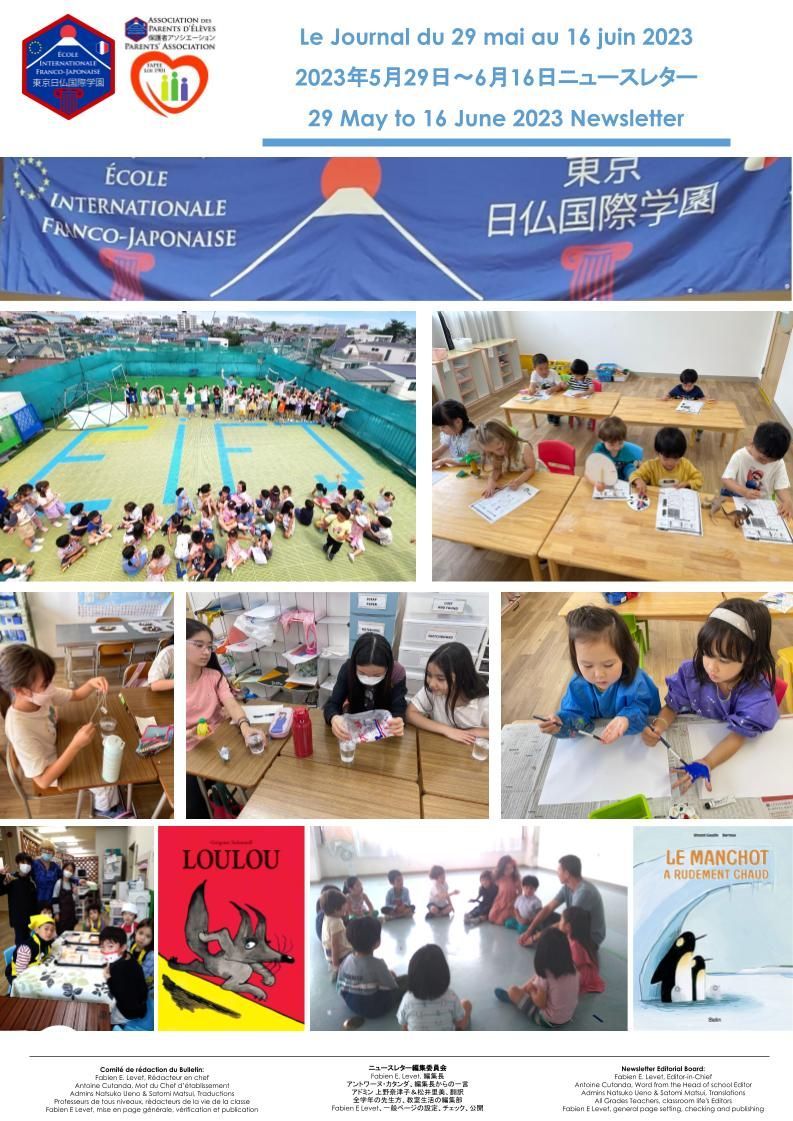

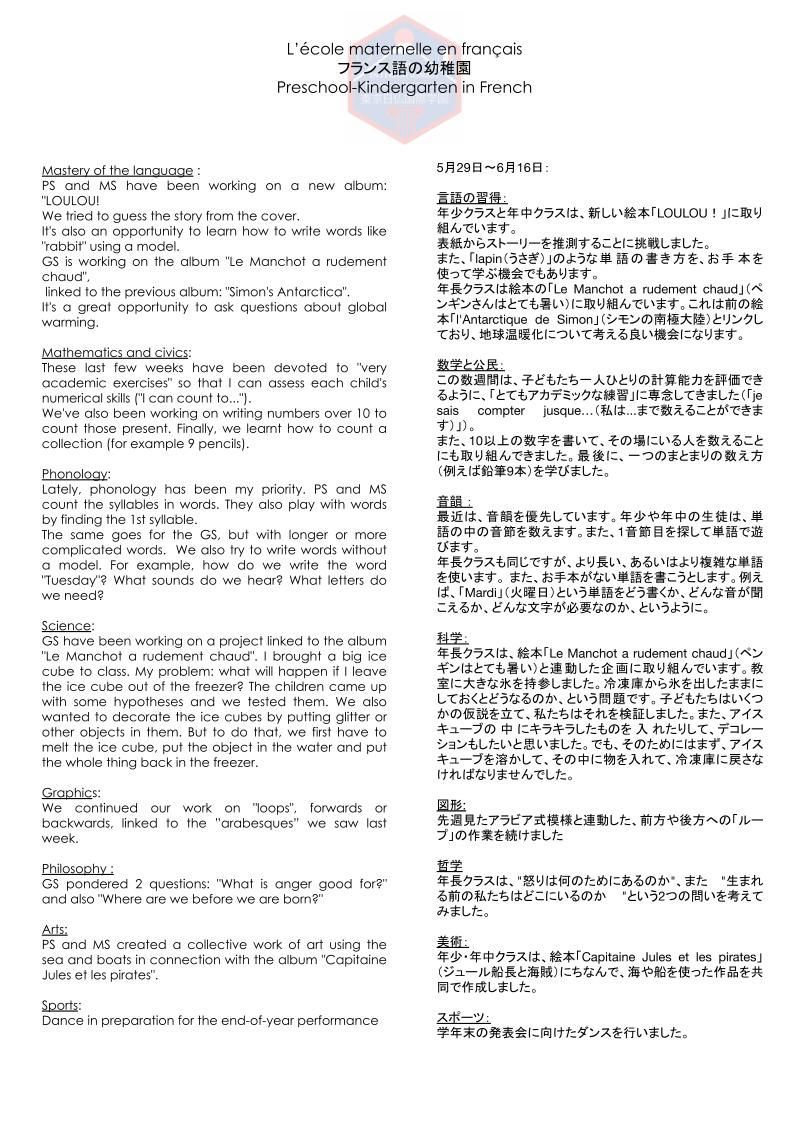
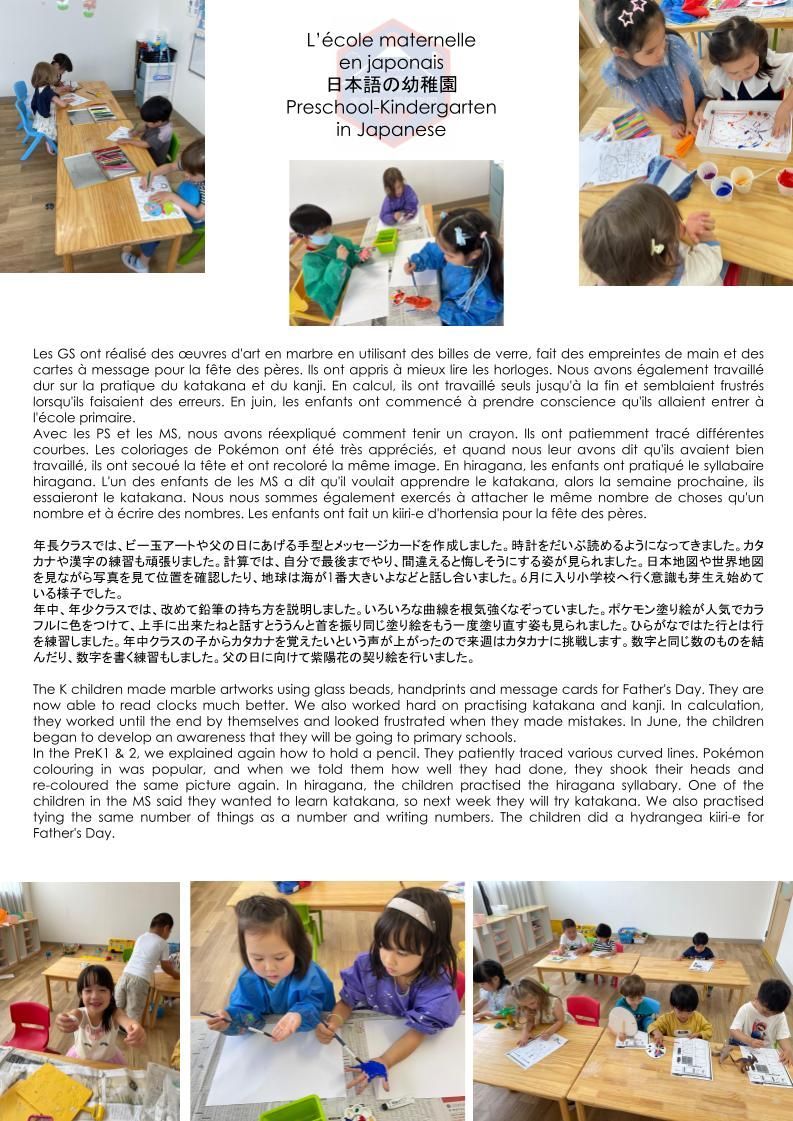
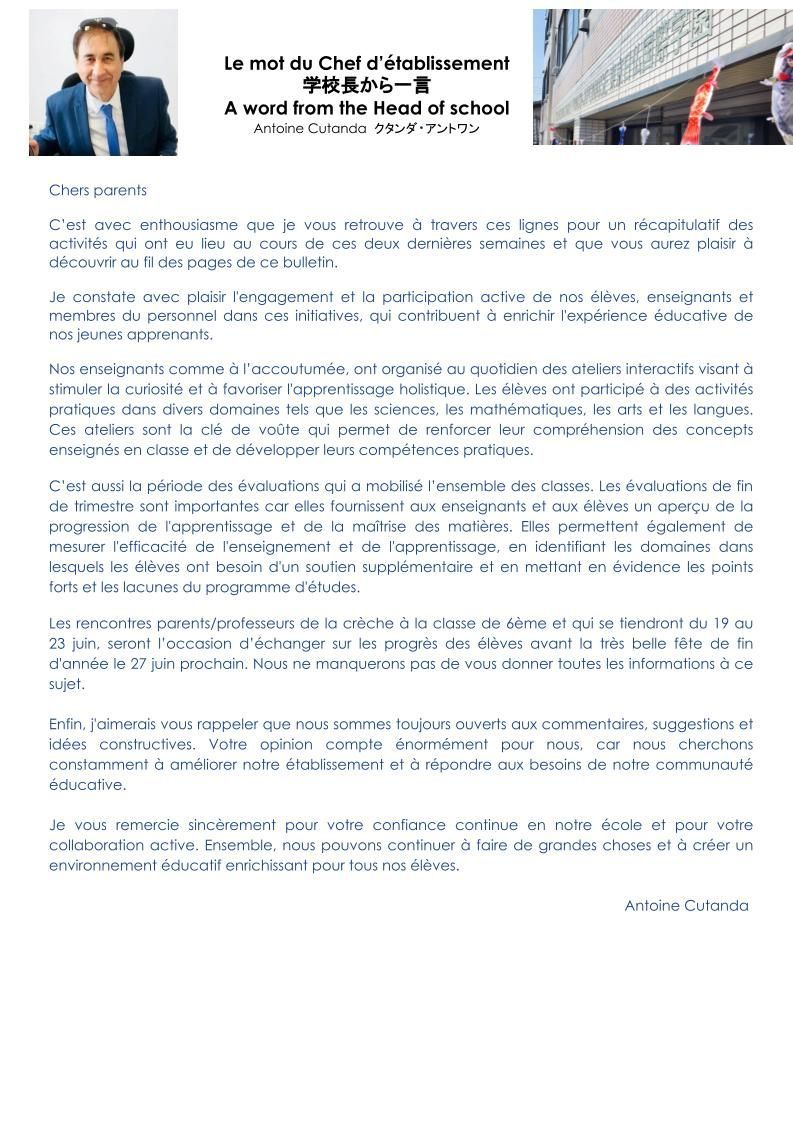
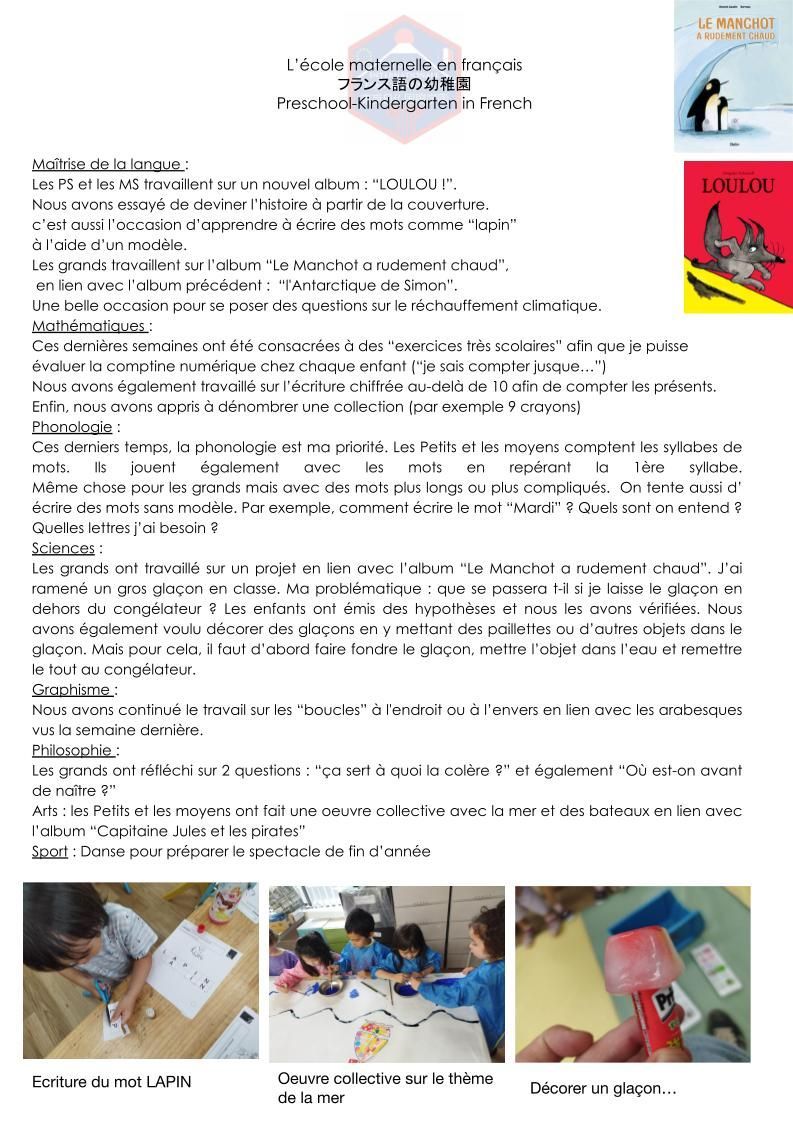
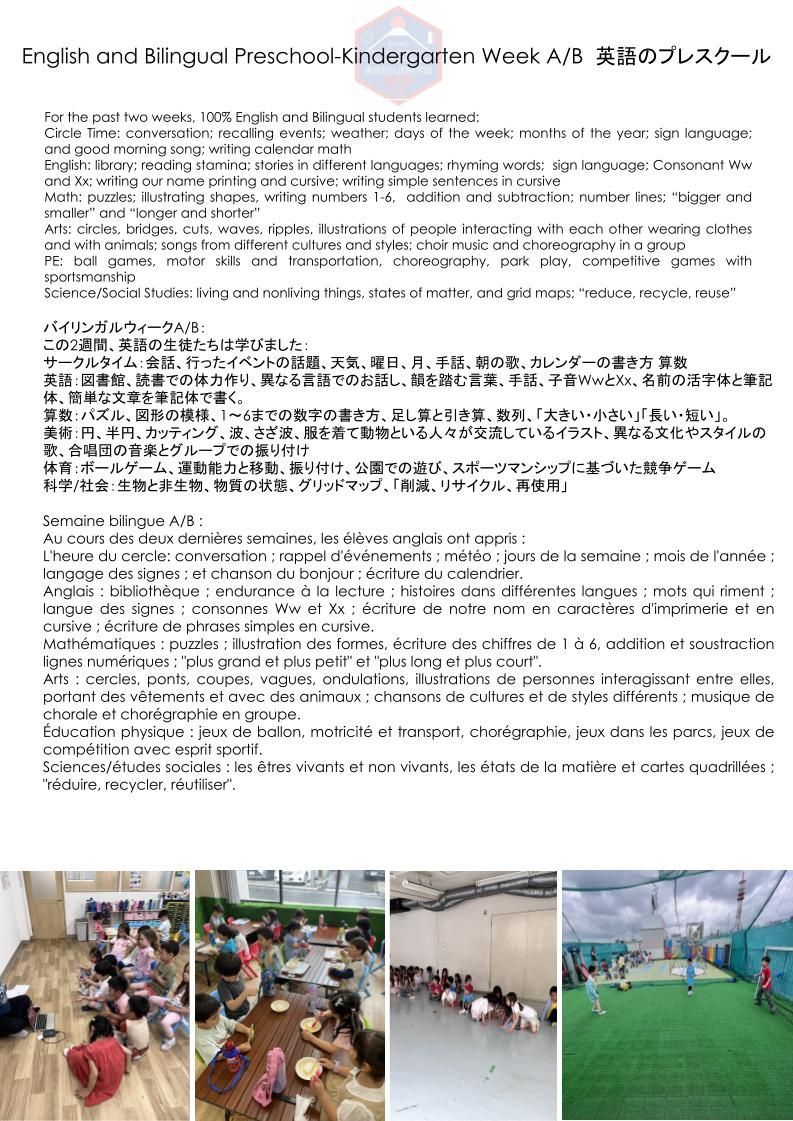
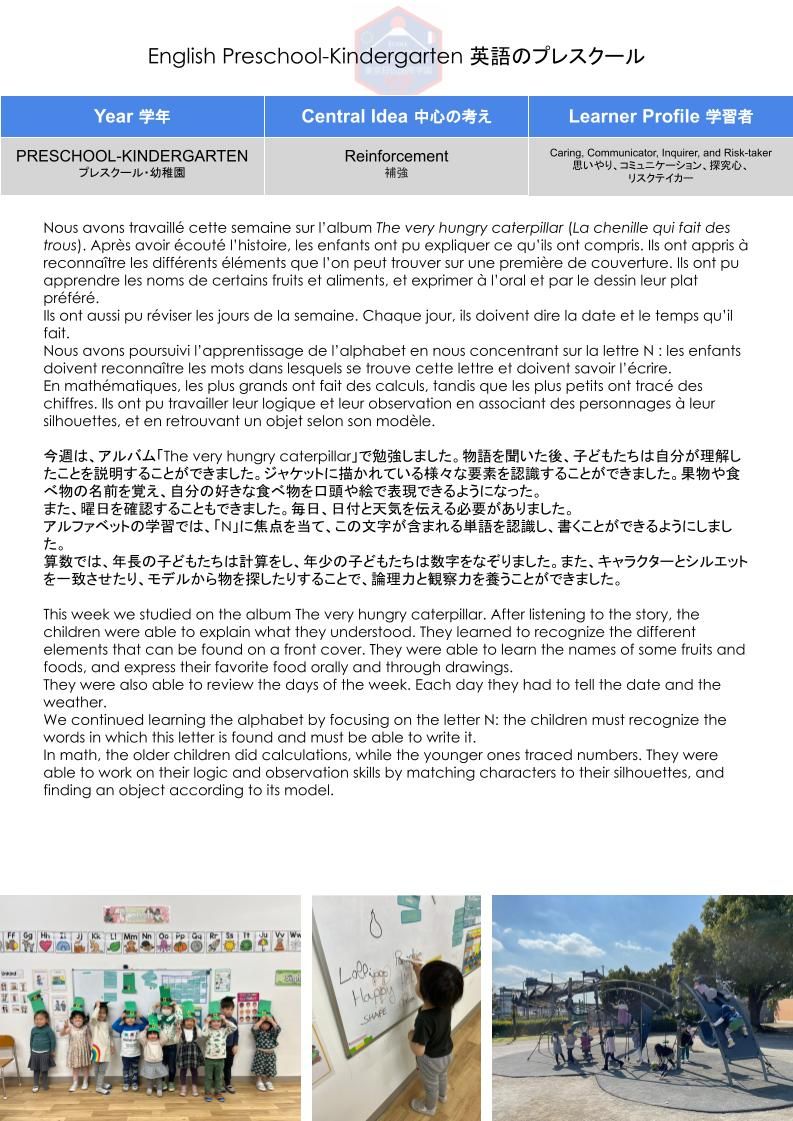
Albums de chaque année scolaire offerts à tous les élèves, 50 pages de souvenirs !
毎年度全生徒に贈られるアルバムは、50ページの思い出!
Yearbooks each year offered to all students, 50 pages of memories!
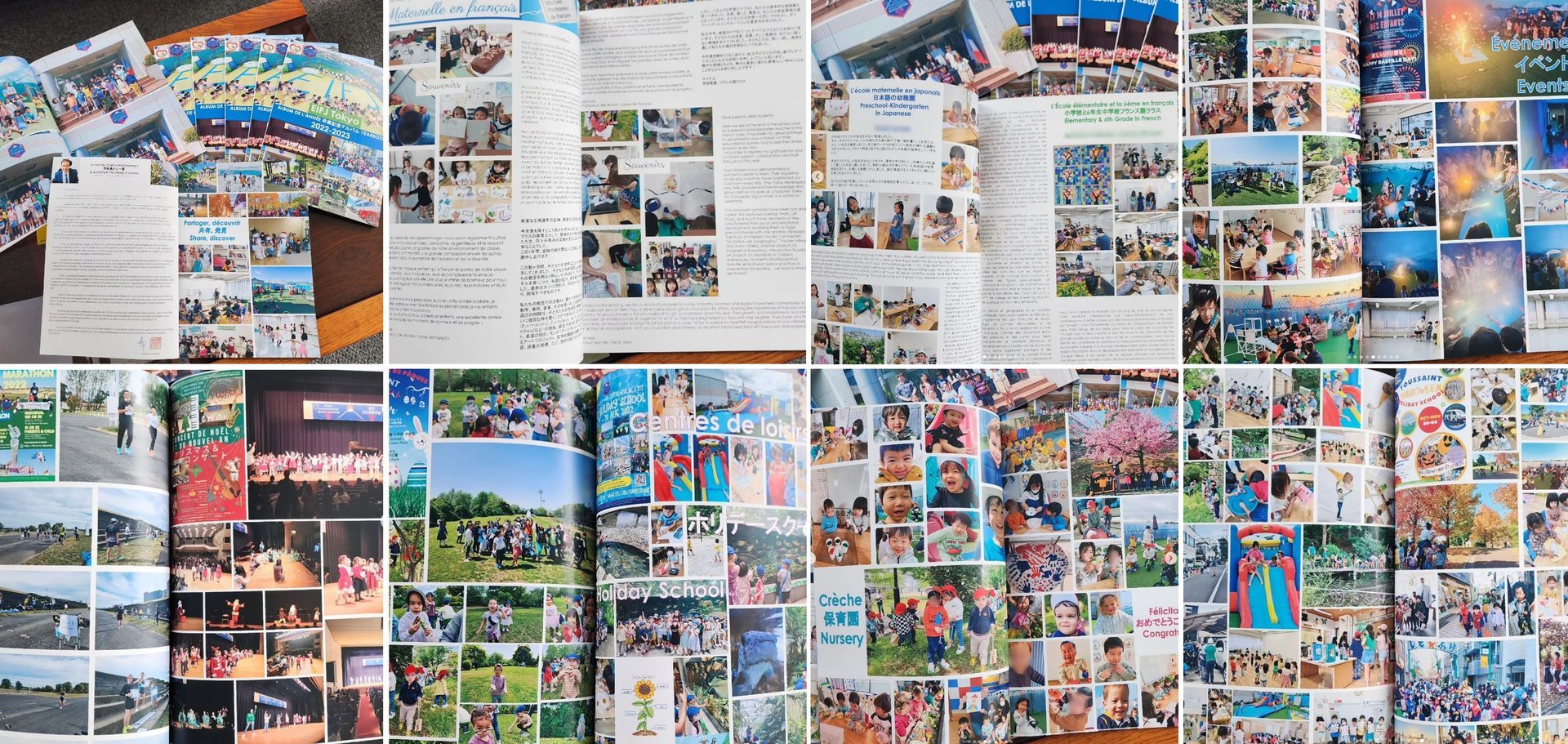
Photos, trilingual French-Japanese-English messages, reports & comments posted on Seesaw, the parents' application used at EIFJ
OPEN SCHOOL
Whether your child is already enrolled in the school, or you are considering EIFJ Tokyo for your child's schooling, or for your own activities, EIFJ Team welcomes you. Let your child spend some time with our students during your visit, ask questions, take advantage of the "intermittent class" program allowing your child to experience a day or more in nursery, preschool-kindergarten, elementary or junior high school programs. Visits are possible Monday to Friday from 10:00 to 12:00 (during study time) and from 16:00, as well as Saturdays from 10:00 to 16:00. Contact us to make an appointment.
In addition to the school management, the President of the Parents' Association, Mr. Maxime Fontaine, is available by appointment from Monday to Friday, usually around noon, to discuss (in French, Japanese or English) in person, by videoconference or by e-mail (association.parents@eifj.org) with any family considering enrollment of their child, and requiring further information.
Venez découvrir L'École Internationale Franco-Japonaise de Tokyo
1-40-13 Nishigaoka, Kita-ku, Tokyo 115-0056
03-5948-9480
contact@eifj.org
Copyright © 2019-2024 École Internationale Franco-Japonaise・東京日仏国際学園 - Part of Golden M Group, LLC



